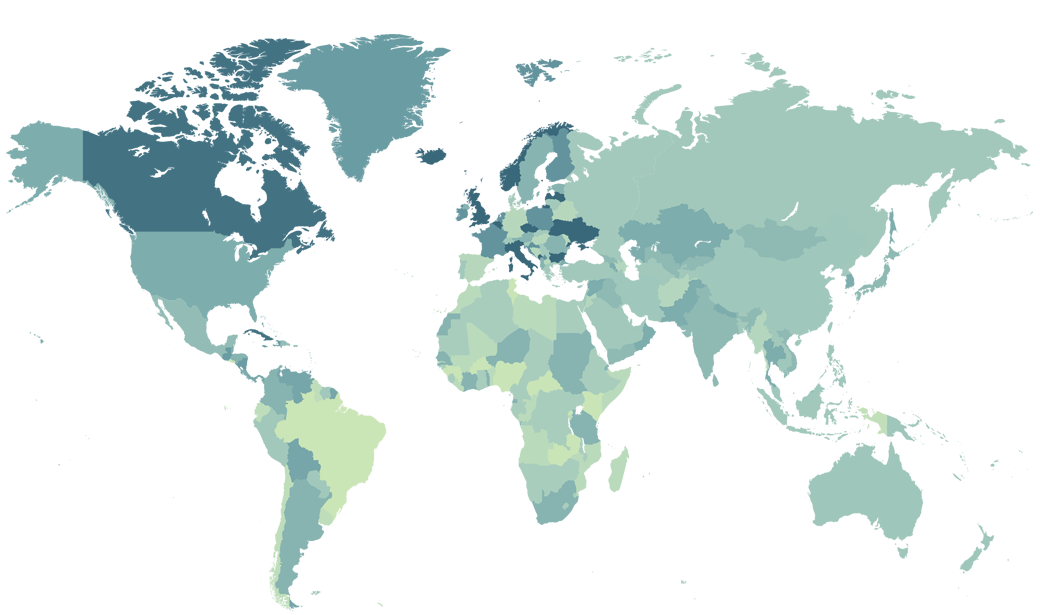Consultancies
Human Rights
Justice Reform
Gender Equality
Democratic Development
Conflict
Peace
JUSTICE UNDERTAKINGS FOR SOCIAL TRANSFORMATION (JUST)
Monitor and advisor to Global Affairs Canada and implementing partners in Jamaica and Canada for a sector wide justice reform programme. Provide advice related to performance measurement in the sector, programme, and initiatives undertaken by implementing partners (institutional and civil society). Support the implementation of best practices in justice sector reform, including access to justice and gender responsive criminal justice strategies. (August 2017 – present)
MEXICO-CANADA JUVENILE JUSTICE REFORM COOPERATION PROJECT
JGG is advising Justice Canada for a juvenile justice reform project in Mexico. Conducting assessments, designing a model juvenile justice system pilots based on international good practices. (2017-present)
Human Rights Ombudsman in Guatemala | 2018 - Present
Over the period of several months, JGG has been supporting the Human Rights Ombudsman in Guatemala in developing an institutional strengthening program. The JGG team of Carmen Ruiz (Bolivia), Otto Valle (Guatemala), Hernando Toro (Colombia), Guillermo Roca (Bolivia) and José Miguel López (Canada) met in Guatemala City last August for an intensive week of workshops. JGG is also providing technical assistance in preparation for a new institutional program in the areas: human rights theory and methodology; structure and functions; and international cooperation management. This process is being funded by the Swedish Embassy in Guatemala, in anticipation of their support to the new program with the Ombudsman from 2019 to 2024.
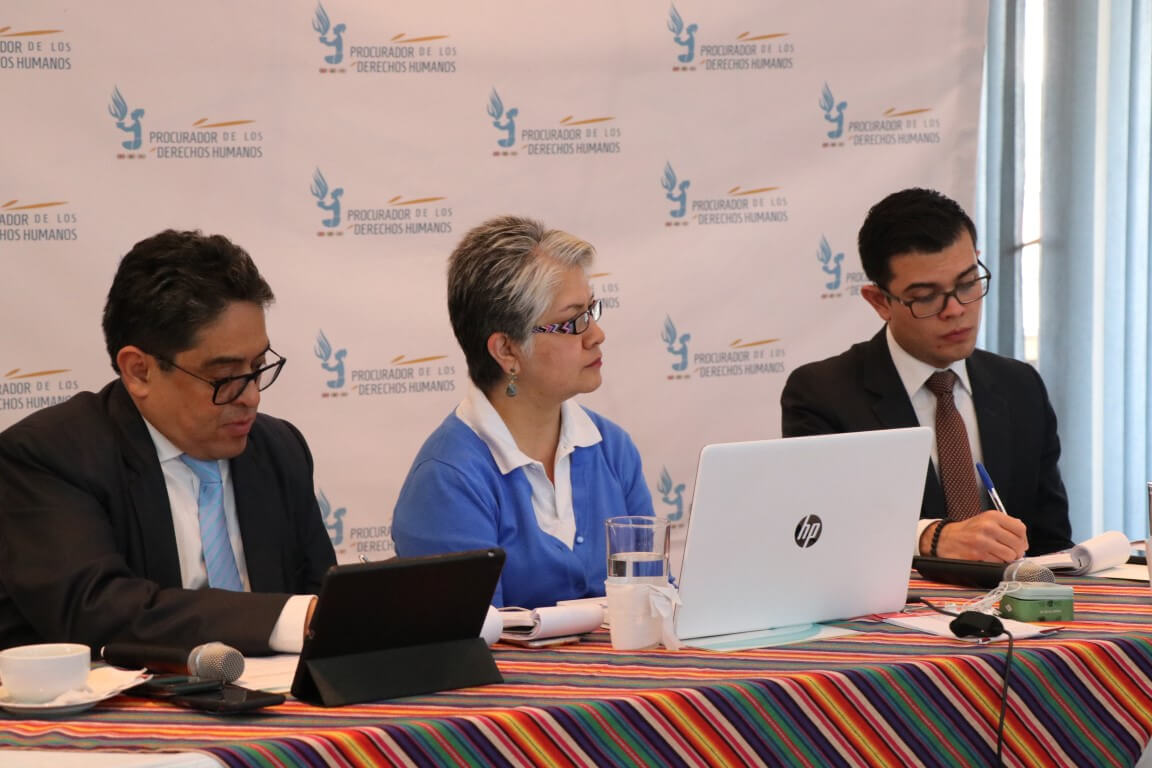
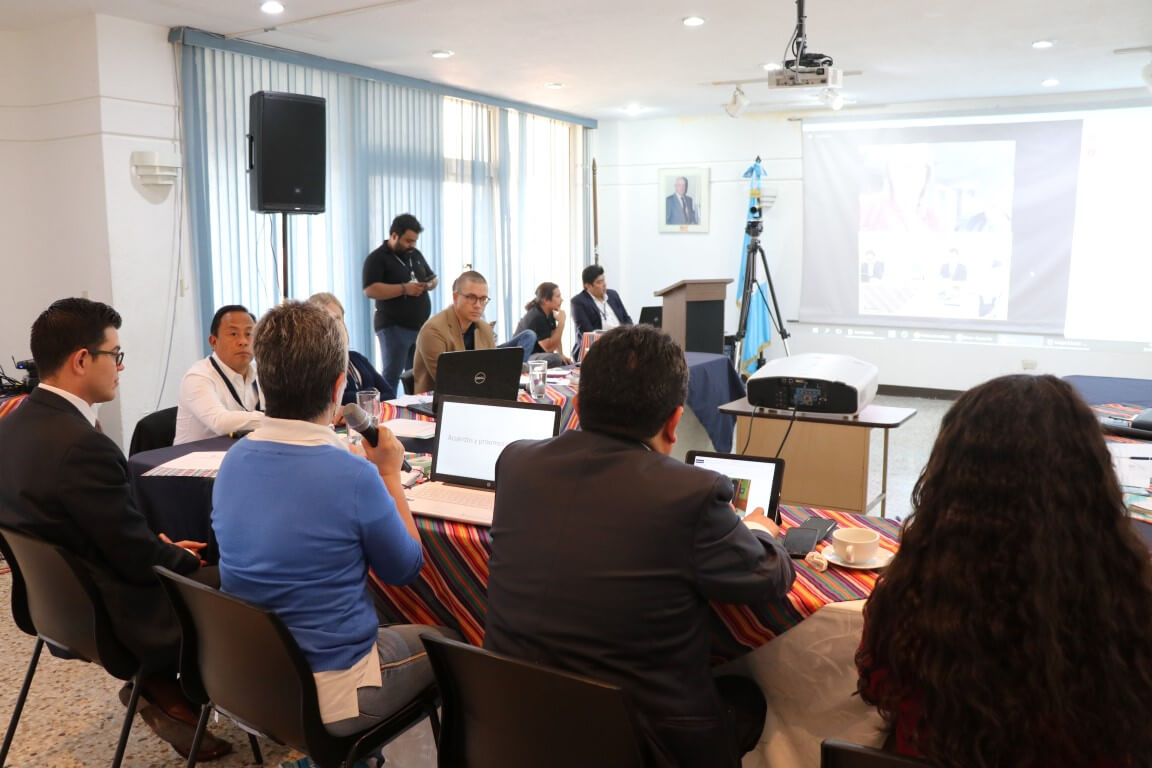

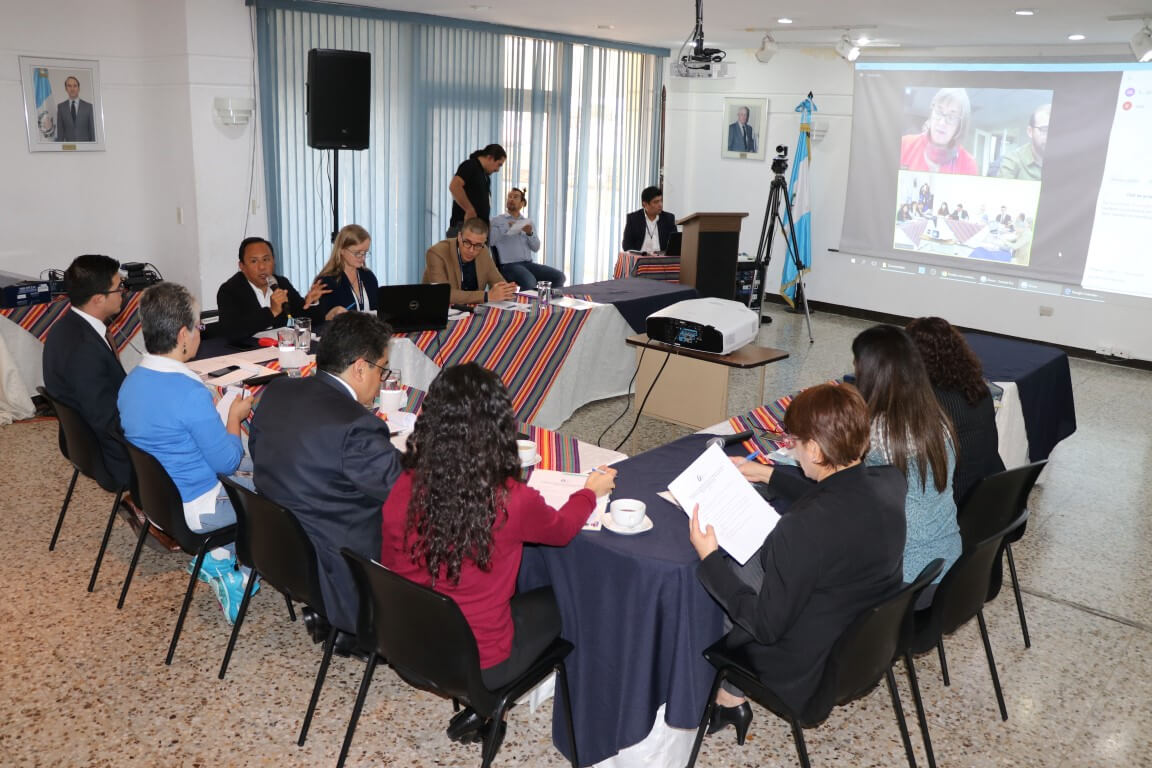
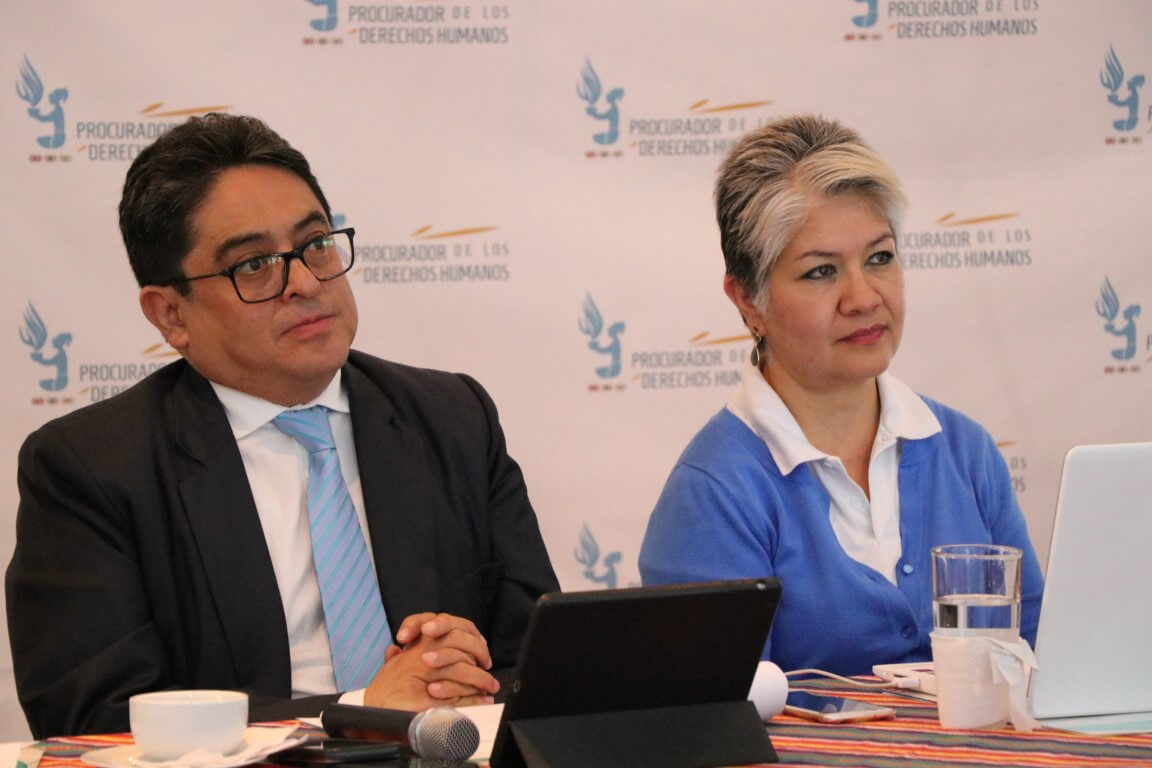
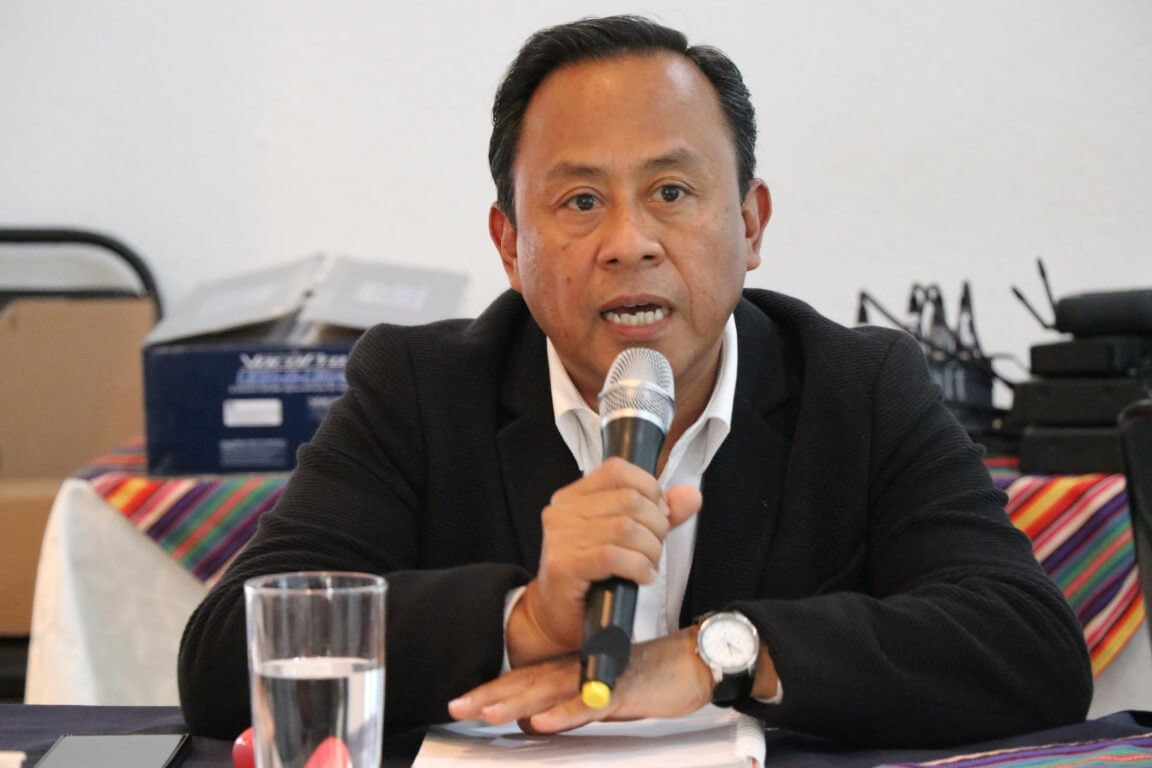
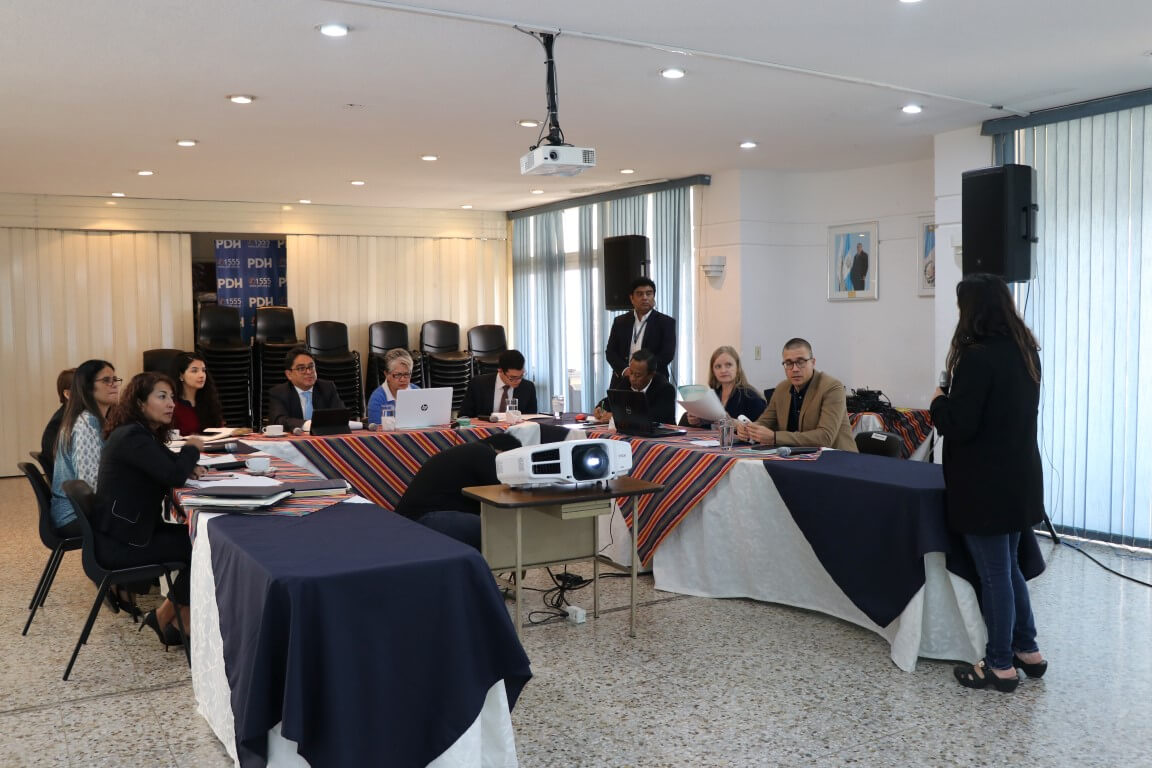
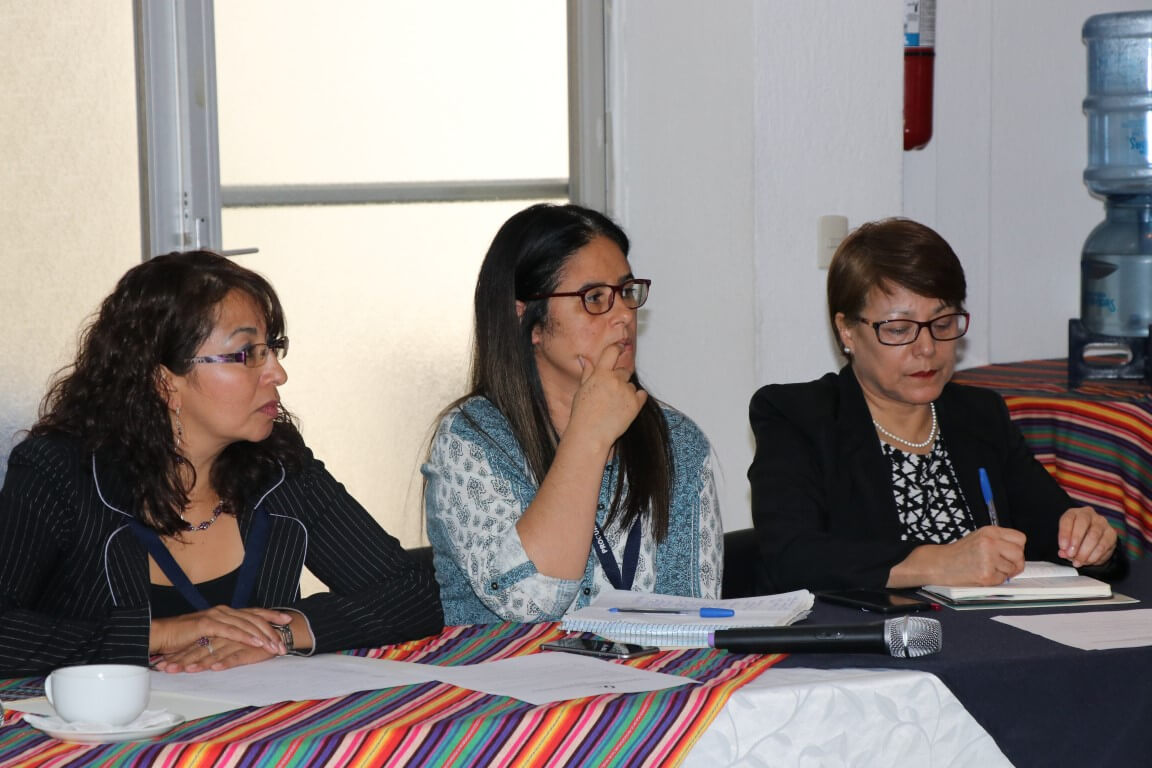
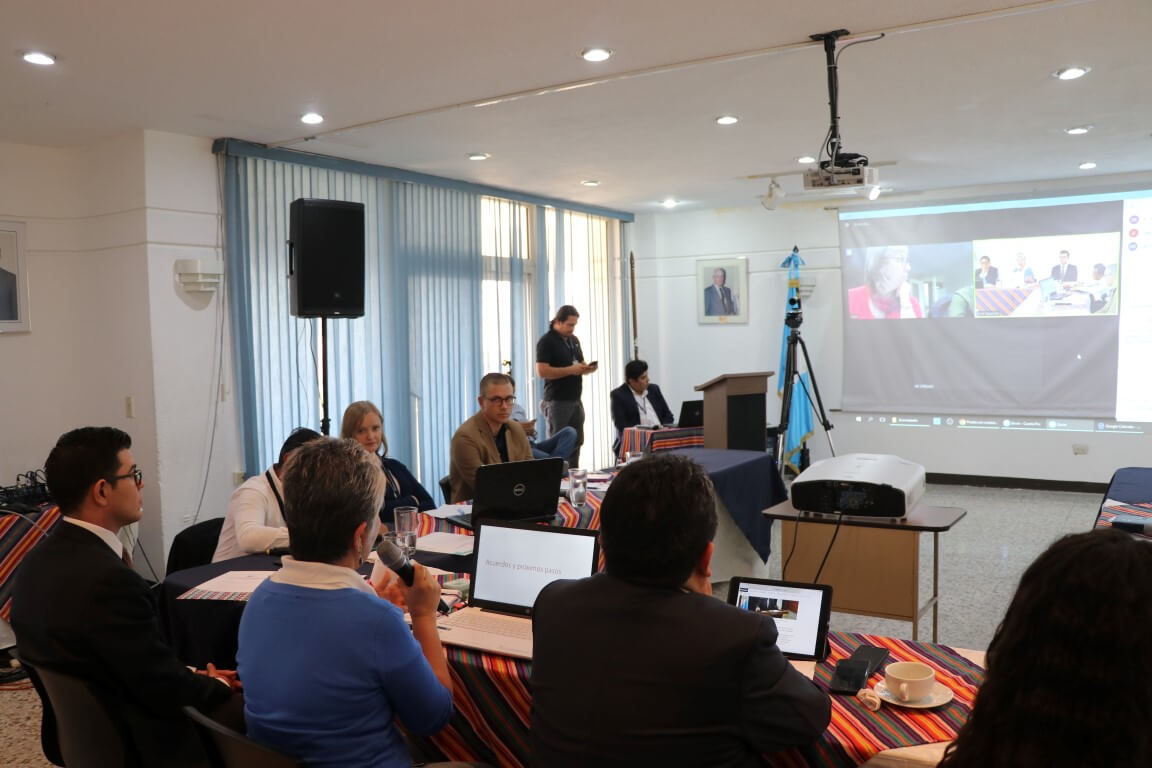
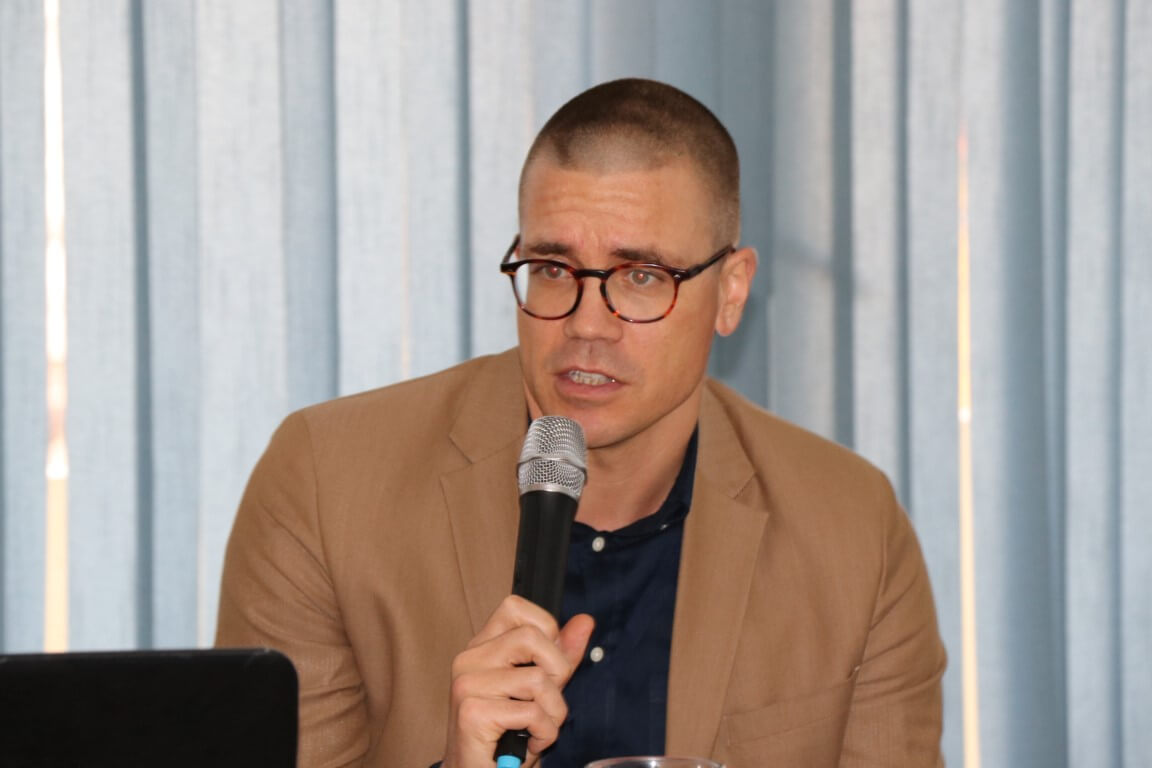
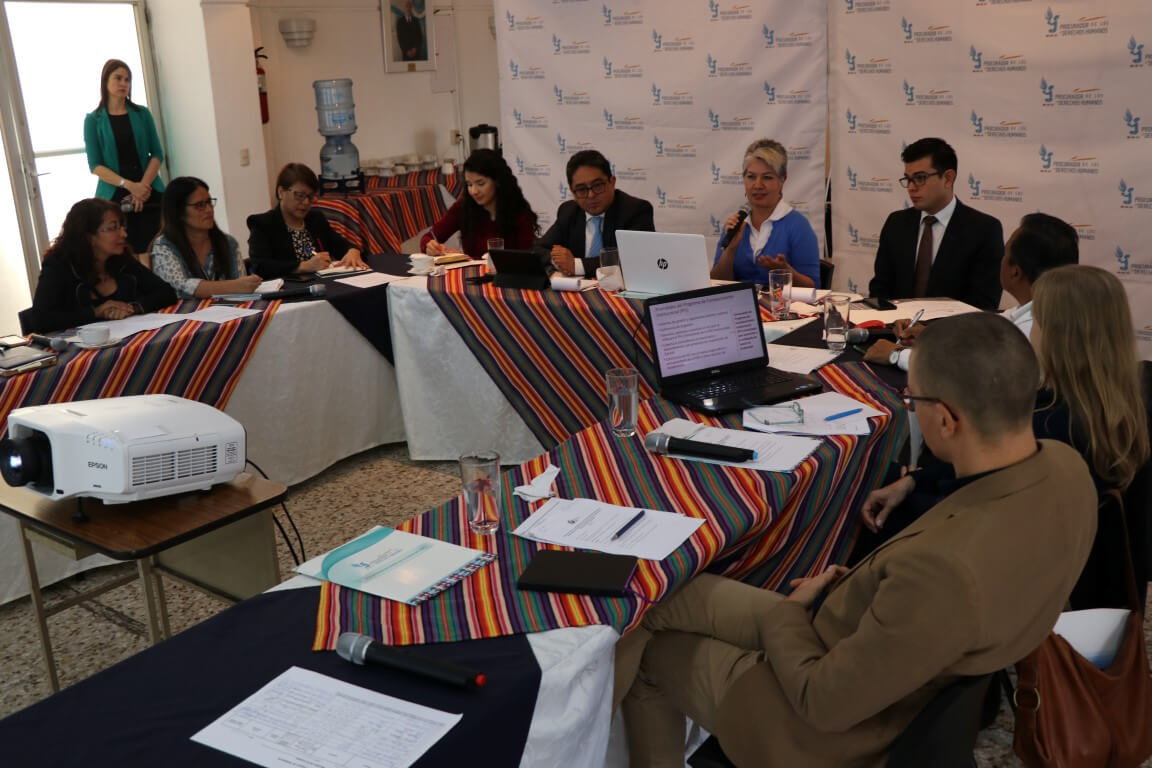
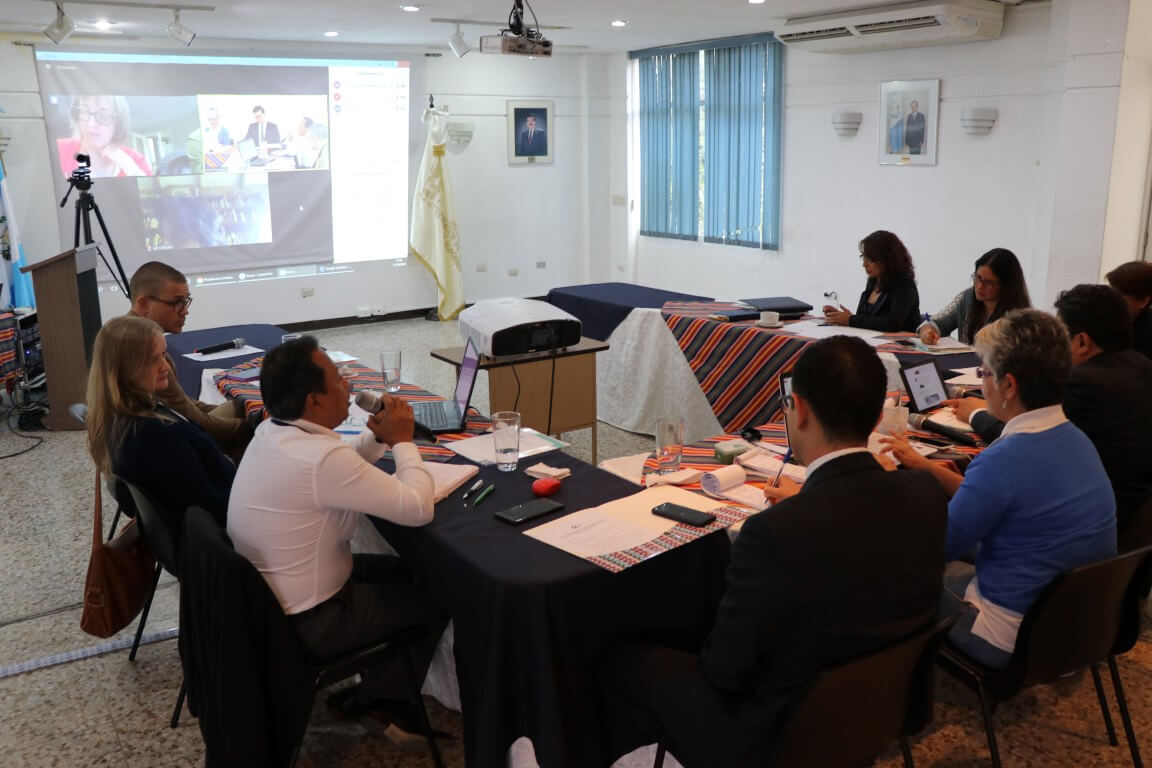
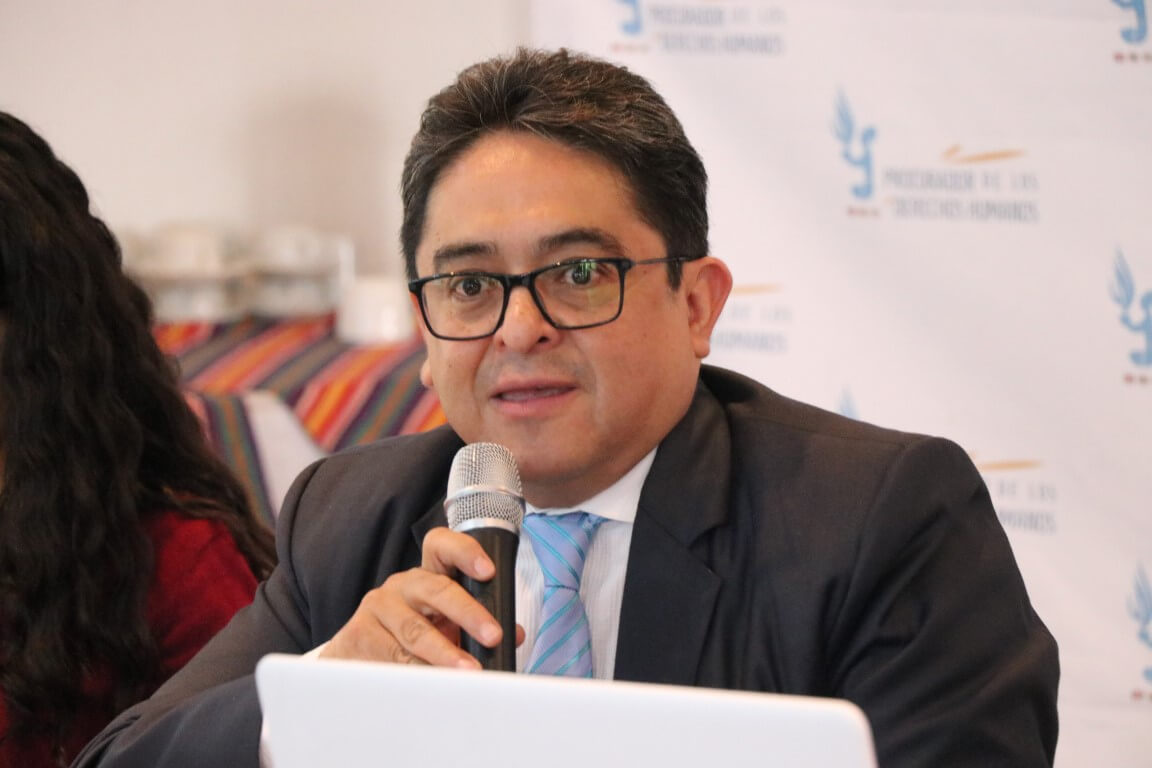
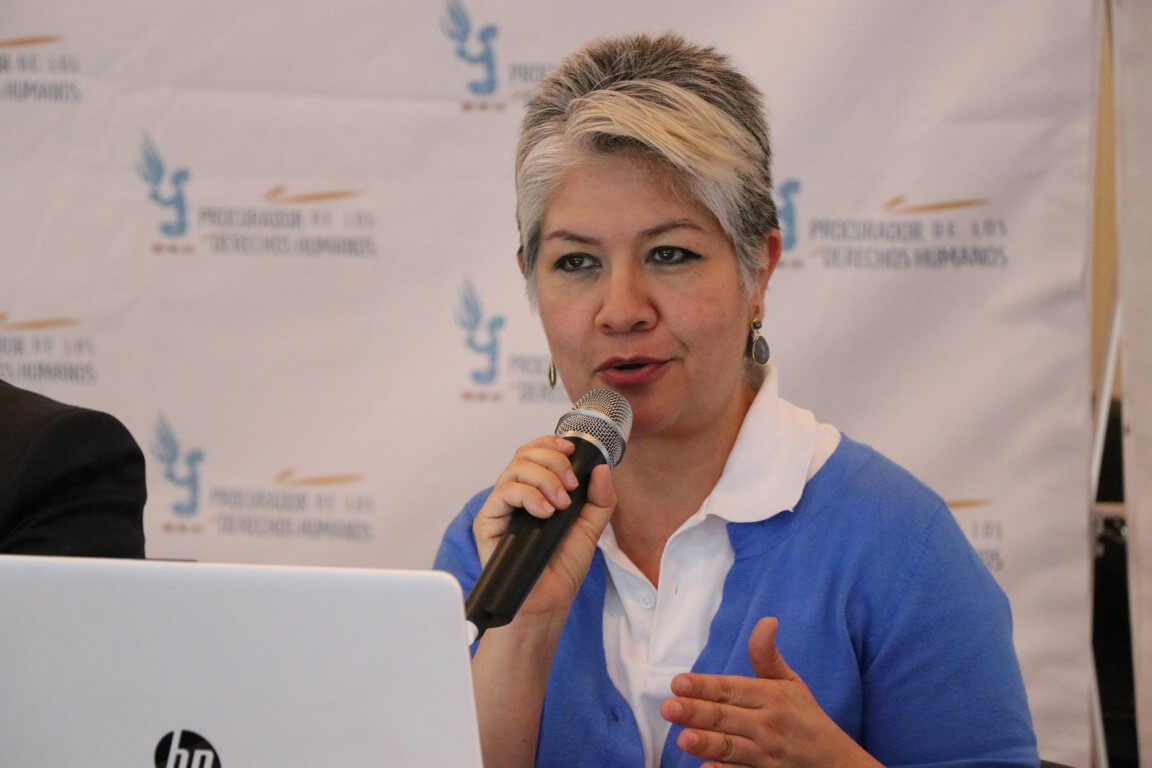
Human Rights Ombudsman in Guatemala | 2017
JGG was selected to conduct an end of program evaluation of the support provided to the Procuraduría de los Derechos Humanos by the Embassies of Sweden and Norway between 2012 and 2016. The evaluation considered the progress made in human rights in the post-armed conflict context through conflict analysis, human rights promotion and human rights investigations. The evaluation report was submitted in October and the JGG was then asked to support strategic planning for the institution’s next strategic plan and program. (August – December 2017 5 weeks)
Safeguarding the Integrity of the 2015 Electoral Process in Guatemala | 2016
Coordinated and conducted quality assurance for the external evaluation of a program implemented by the National Democratic Institute with nine civil society organizations. The program built the capacity of individual organizations and a consortium in relation to long termand election day observation methods, risk assessment, citizen participation (with a focus on youth, women and indigenous peoples) and electoral reform. Managed the evaluation process: selected and supervised electoral and evaluation experts, reviewed program documents, facilitated data analysis, provided comments on internal draft reports and communicated with NDI. (May – August, 2016)
CISAL GENDER EQUALITY STRATEGY FOR THE FEDERATION OF CANADIAN MUNICIPALITIES
JGG´s gender specialists Paola Jiménez (Colombia) and Kimberly Inksater (Canada) reviewed the progress of the Sustainable and Inclusive Communities project in Latin America (CISAL) in terms of gender equality and inclusion and updated the project’s gender equality strategy. CISAL provides support to local governments in Colombia and Peru to successfully manage the impacts and benefits from mining development and promote sustainable economic growth for women and men. The JGG team also formulated a two-year plan of action and provided practical tools to improve CISAL´s monitoring and evaluation practices. (2018)
END-LINE ASSESSMENT RELATED TO THE PREVENTION OF CHILD LABOUR IN TURKEY.
In June the group of Lloyd Lipsett (Canada), Jean Pierre Chabote (Canada), Muge Tuna (Turkey), Alessandra Tassara (USA) and Kimberly Inksater (Canada) completed the end-line assessment of the pilot project “Partnership to Prevent Child and Forced Labor in Imported Agricultural Products: Piloting the USDA Guidelines in Turkey’s Hazelnut Supply Chain”. The JGG team captured the state of the systems and programs, assessed changes and results from the pilot project and derived lessons learned that will support the future implementation of the USDA Guidelines.
Constitutional Jurisprudence on Gender Equality | 2016-2017
JGG led a team of legal researchers to identify and analyze constitutional text and national court decisions related to constitutional review of cases or legislation related to family life, gender-based violence and women’s access to public life. (August 2016 – February 2017)
Human Rights Impact Assessment Tool | 2015
For Bank on Human Rights Coalition, Kimberly Inksater and Lloyd Lipsett lead the development of standards and indicators of an assessment tool designed for use by development finance institution and borrower country personnel in assessing ex-ante project impacts on human rights. The standards for the assessment are based on international human rights law, guiding principles, and best practice among development finance institutions across various issue areas such as indigenous peoples, land, health, labour, and poverty reduction. Two law students from the Faculty of Law at the University of Ottawa supported the research.
Sexual Violence against Women in Transitional Justice and Legal Pluralism | 2014
Conducted research on transitional justice in theory and practice in countries characterized by legal pluralism and the effectiveness of non-judicial mechanisms to address crimes of sexual violence in a post-conflict period. Reviewed national constitutional jurisprudence and international jurisprudence (e.g. ICTY). Supervised two university student researchers in this JGG financed initiative. (2014)
Fragile States Course | 2013-2015
Since 2013, Just Governance Group provides Subject Matter Experts to a Canadian government course called “Introduction to Fragile State Policy.” In March, 2015 Dr.Stephen Baranyi of the University of Ottawa was the expert for the delivery of the course in French at the Centre for Intercultural Learning. The Centre co-delivers courses for the Department of Foreign Affairs, Trade and Development. In 2013 and 2014, Kimberly Inksater provided the content expertise to an English version of the same course.
Sustainable And Inclusive Communities | 2013
For the Federation of Canadian Municipalities, Kimberly Inksater led the development of the Project Implementation Plan for the Sustainable and Inclusive Communities in Latin America (CISAL) Program. The program seeks to strengthen local government and local government associations in participatory local economic development in communities where mines operate. As the lead advisor, Ms.Inksater helped lead a multidisciplinary and multicultural team in conducting a diagnostic assessment of the priorities and needs of selected municipalities in Colombia and Peru where mines operate. Advisory work focused on results based management, gender equality and context analysis in order to prepare a program implementation plan.
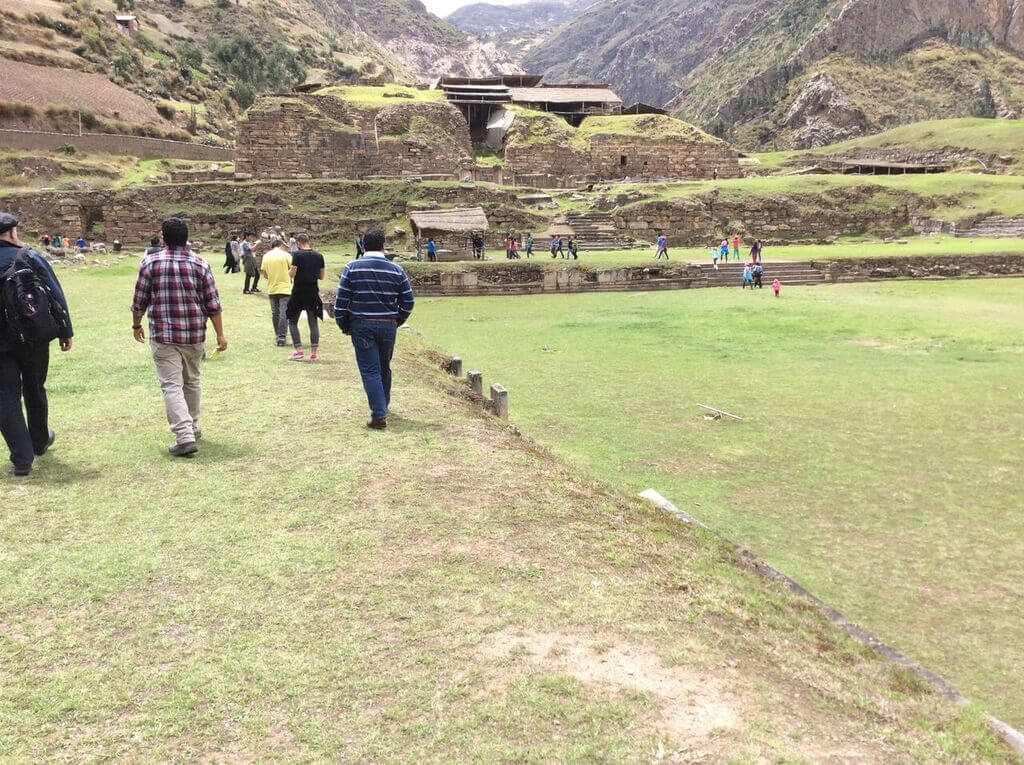
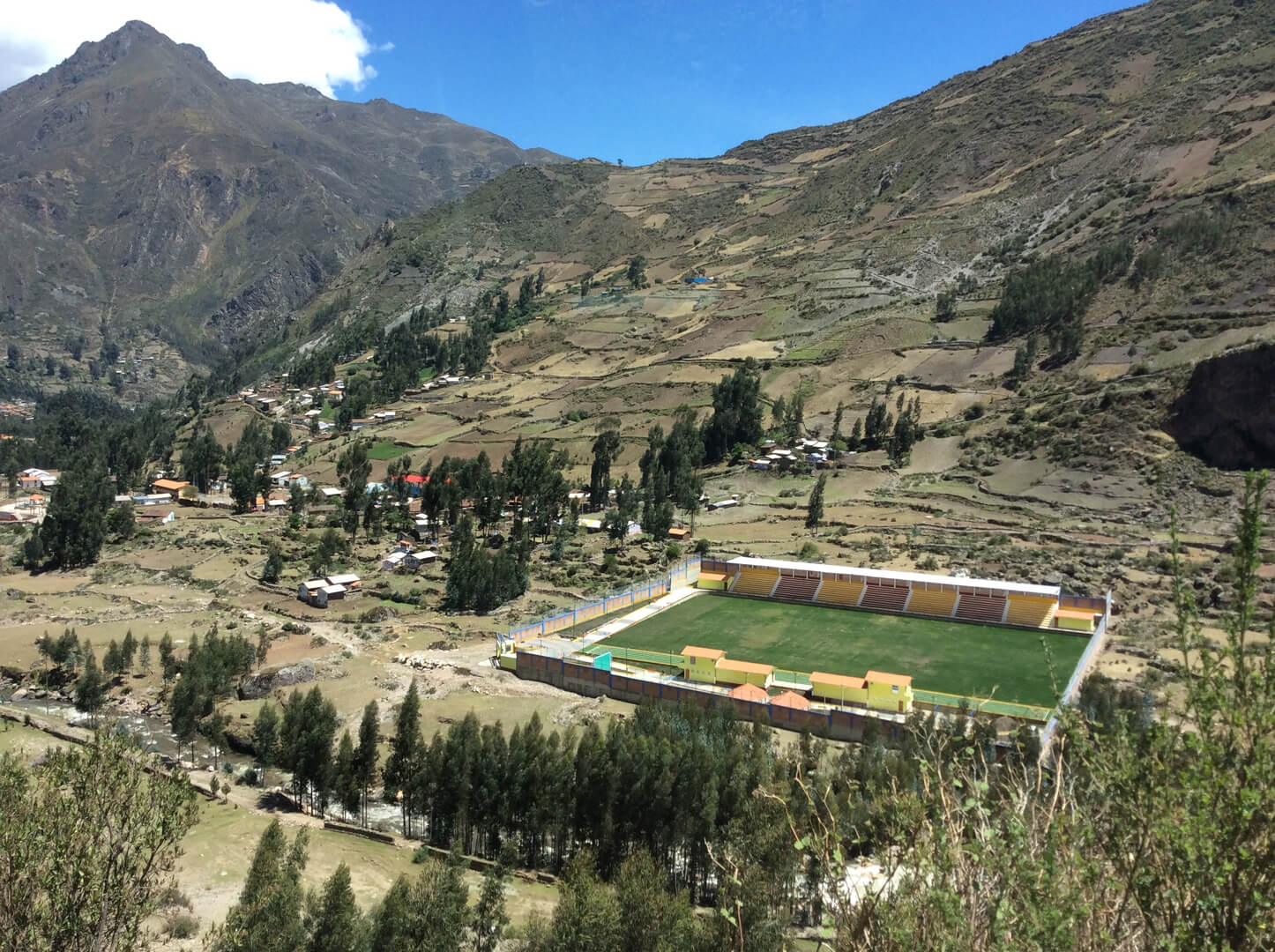
Human Rights Impact Of Trade | 2011
Human Rights impact assessment methodology and guide for the Department of Foreign Affairs and International Trade (Canada). Designed measurement indicators appropriate to human rights possibly affected by trade activity. The proposed methodology was designed to measure the impact of the Canada Colombia Free Trade Agreement on human rights in Colombia and Canada, consult with stakeholders and the public on findings and report on findings to the Parliament of Canada.
Right To Be Consulted Conflict Prevention And Corporate Social Responsibility | 2011
Presented a paper on the advances on each of these issues and reflected on how they are mutually reinforcing themes, especially related to the extractive industry, at the symposium of the Just Governance Group held for government officials. (2011)
Capacity Building and Service Delivery in Fragile States | 2011
JGG researched good practice guidelines and lessons learned from development and reform efforts in states considered fragile due to armed conflict or other factors for UNICEF. Compiled lessons learned related to various sectorsincluding: justice and rule of law, education and health in order to provide guidance to UNICEF’s child protection work. (2011)
Measuring Justice Sector, Security And Rule Of Law Reform | 2009
Conducted research and prepared a resource manual on justice concepts, good practices in justice sector assessment and measurement, and general programming options in justice, security and rule of law sectors for CIDA Asia Branch. Identified good practices in fragile states and emerging democracies including gender-specific responses. Prepared the technical content of a workshop on performance measurement in the justice sector. Also prepared a tip sheet on good practices in performance measurement in justice reform projects to guide officers in analysis of sector, project design and results-based measurement. (2008-2009)
Planning Judicial Education Initiatives In Developing Countries | 2008
Advised the International Cooperation Group of the National Judicial Institute (judicial education for federal judges) on the design/planning of two new multi-actor and multi-country judicial education initiatives with Canadian and justice sector partners in various developing countries. Prepared project planning documents and logic models with the NJI team. (2008)
Results Performance Study of Legal and Judicial Reform in Asia | 2008
Conducted a desk study of ten sample LJR projects for Asia Branch at CIDA in order to identify outcomes and good practices in results-based management in the justice, security and rule of law sectors. Gathered and systematized good practices from international sources in order to assess the success of the CIDA-supported projects. (2008)
Judicial Education Network - Canada | 2008
Conducted an evaluation of a project that established a network of judicial educators implemented by the National Judicial Institute and supported by CIDA. Evaluated the network against good practices in network management in the international development context and expected results for improved judicial education in the Americas, the Philippines, Canada and Ghana. (2008)
International Instruments And National Legislation Related To Hiv/Aids Discrimination In China | 2007
Researched and analyzed anti-discrimination provisions of international human rights conventions and Chinese legislation in order to demonstrate the legal basis for a project at initial design phase. Also examined justice-related approaches to address discrimination against people living with HIV/AIDS for further consideration in the design phase. (2007)
OAS EDUCATION FOR DEMOCRATIC VALUES AND PRACTICES
Just Governance Group has been contracted to undertake a summative evaluation of the Inter-American Program on Education for Democratic Values and Practices (EDUCADEM). The program’s objectives are to support research and analysis on the promotion of a democratic culture through education, professional development and educational resources, and cooperation and information exchange between international, national, and local institutions throughout the Americas. Kimberly Inksater, Dr.Reyna Hiraldo and Carmen Beatriz Ruiz will perform the evaluation that will help to assess the results of EDUCADEM, identify lessons learned and provide recommendations for similar democratic citizenship education initiatives in the future.
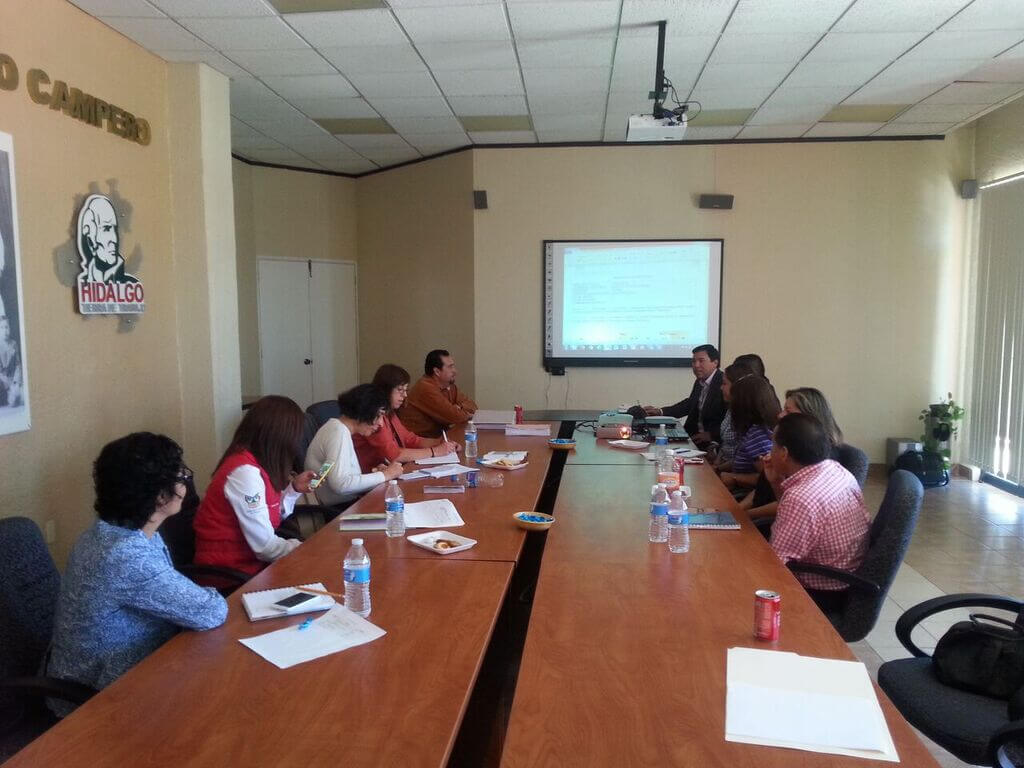
Women Friendly Cities in Turkey – Indevelop/Sida
A group of multinational consultants collaborated with Swedish consultancy firm Indevelop to evaluate the UN’s Women Friendly Cities Programme (WFC) in Turkey. The work was commissioned by the Embassy of Sweden. The programme’s main objective was to promote an enabling environment for women-friendly communities by means of mainstreaming gender into the municipal and provincial planning processes that ensured dialogue between local authorities and women NGOs. Kimberly Inksater (Team Leader), Anamaria Golemac Powell and Zeynep Baser evaluated the programme by collecting secondary data and primary data through field visits to four Turkish pilot cities participating in the WFC programme. Their evaluation helped determine the effectiveness and sustainability of the programme and identify lessons learned and recommendations for the final phase of the Women Friendly Cities Programme.
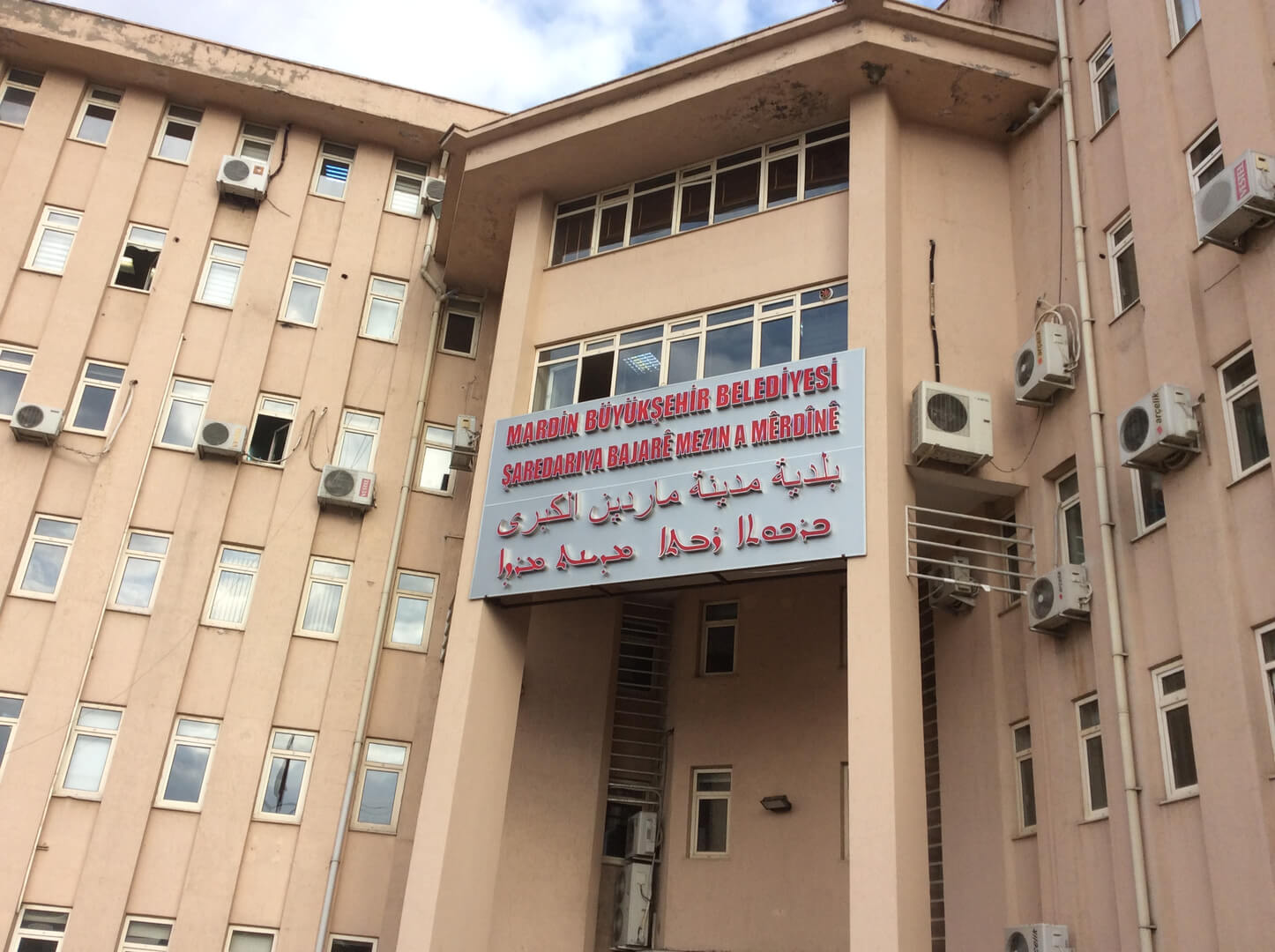
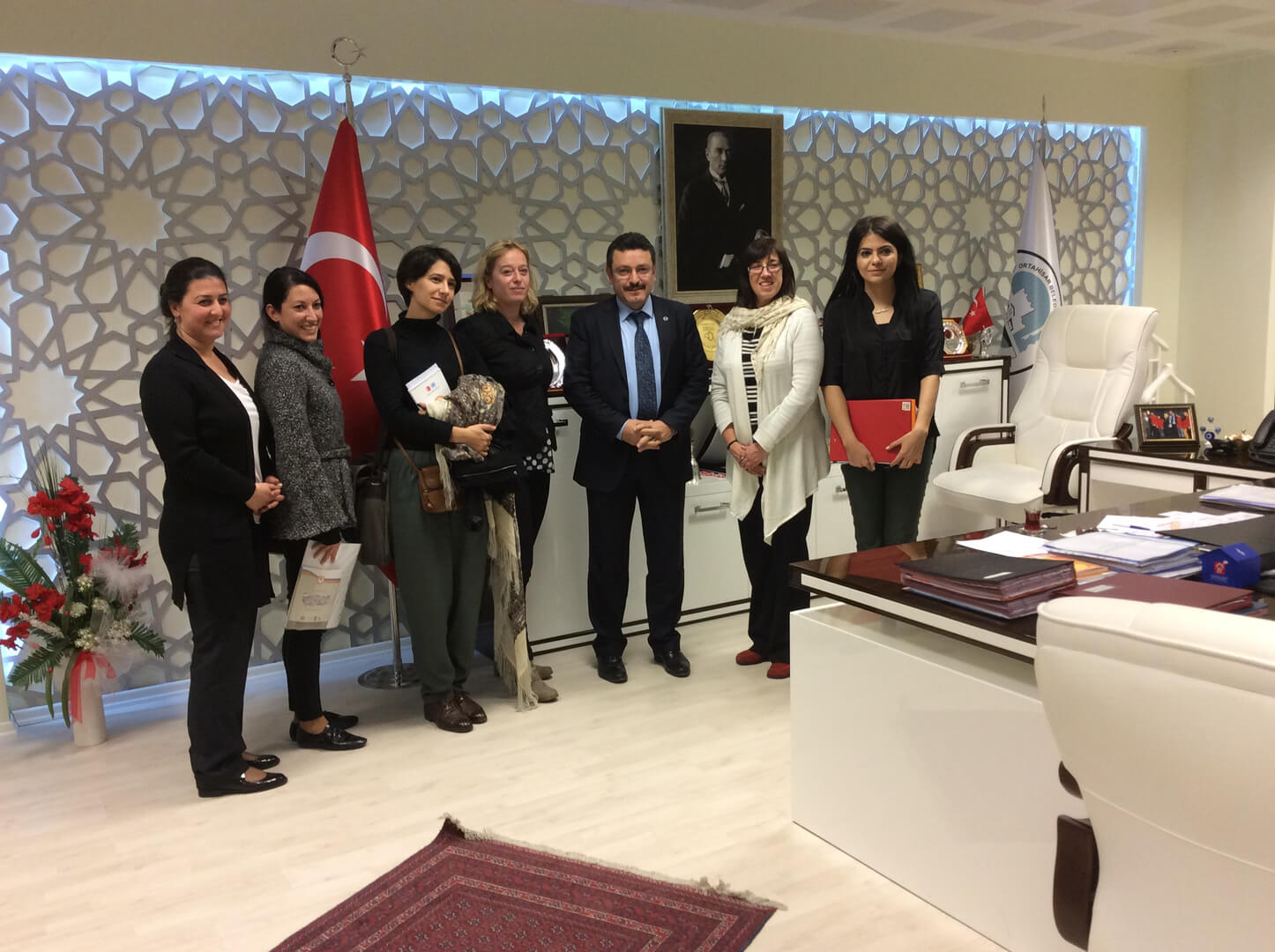
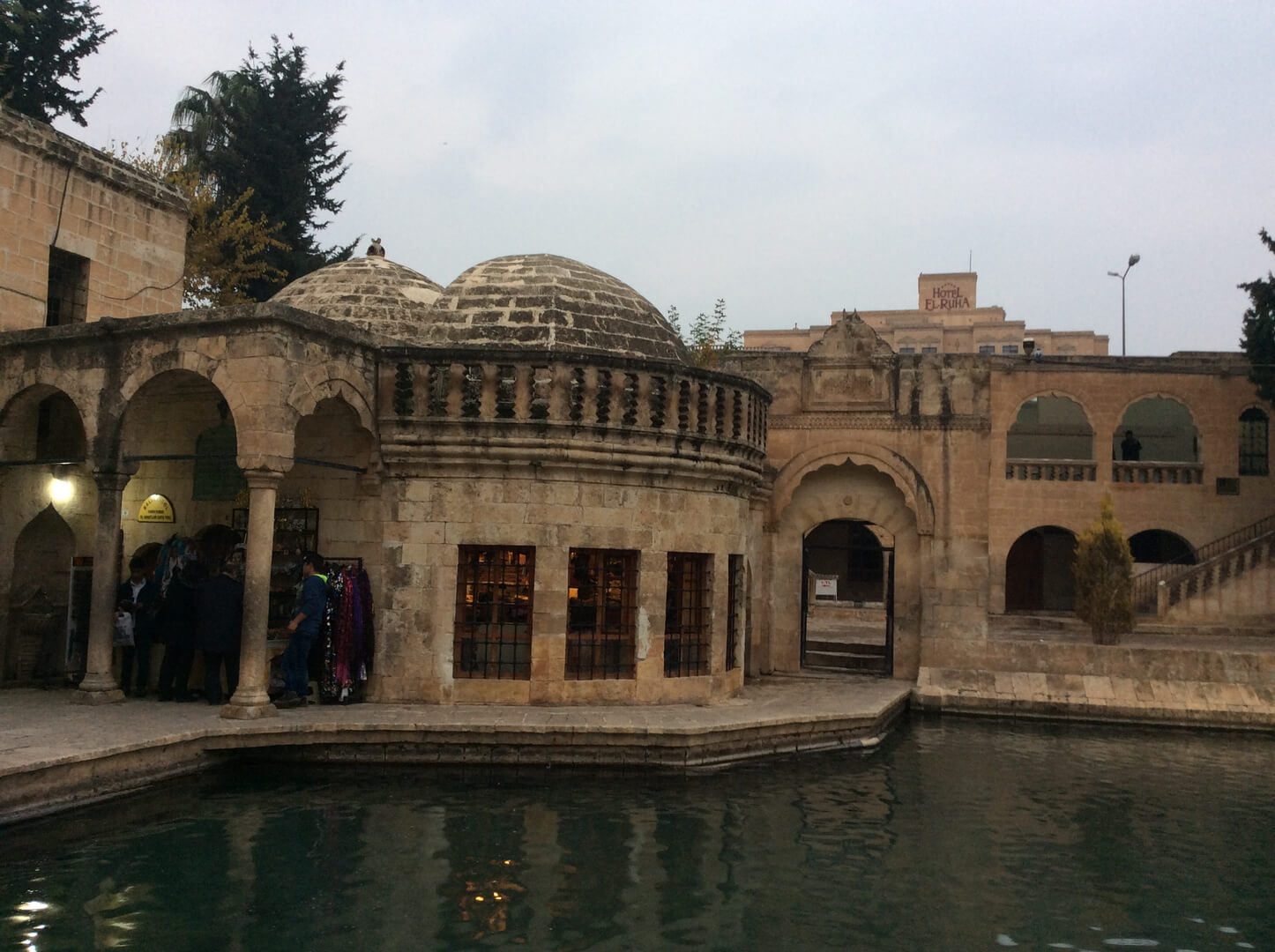
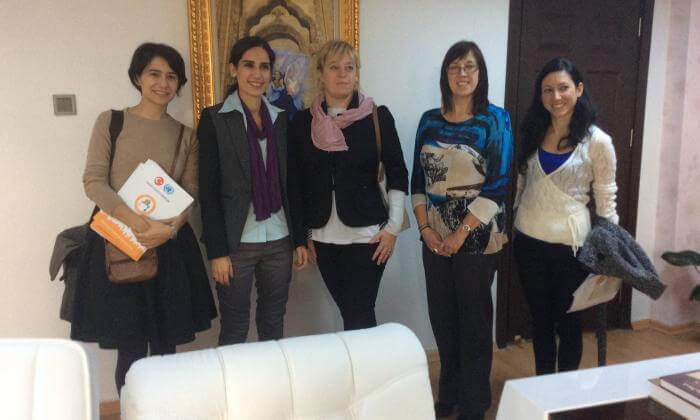
SUSTAINABLE AND INCLUSIVE COMMUNITIES
For the Federation of Canadian Municipalities, Kimberly Inksater led the development of the Project Implementation Plan for the Sustainable and Inclusive Communities in Latin America (CISAL) Program. The program seeks to strengthen local government and local government associations in participatory local economic development in communities where mines operate. As the lead advisor, Ms.Inksater helped lead a multidisciplinary and multicultural team in conducting a diagnostic assessment of the priorities and needs of selected municipalities in Colombia and Peru where mines operate. Advisory work focused on results based management, gender equality and context analysis in order to prepare a program implementation plan.


Child Protection Colombia | 2014
For Baastel, Kimberly Inksater provided advisory services for the development of a program implementation plan for Mercy Corps and War Child, two international NGOs working on child protection in armed conflict zones in Colombia. The two organizations came together to create a consortium to implement the Protecting, Educating and Advancing Children and Youth in Colombia (PEACYC) program funded by the Canadian Department of Foreign Affairs, Trade and Development (DFATD). Ms. Inksater led the participatory process to prepare the program implementation plan. A team comprised of two Baastel consultants and consortium personnel prepared the results framework, performance measurement framework, risk mitigation strategy, organizational structure, implementation strategy and schedule, gender equality strategy, and communication strategy for the program.
Human Rights in Armed Conflict Zones - Colombia | 2005-2008
Provided advisory services and accompaniment with the Defensoría del Pueblo in its three-year institutional strengthening program in conflict zones (funded by Sida). Assessed the human rights protection and promotion initiatives of the Defensoría in the context of armed conflict from a perspective of the multiple disadvantages of vulnerable population groups (gender and ethnicity). Assessed the institution’s monitoring of the government’s compliance with constitutional jurisprudence related to internal displacement and the armed conflict. (2005-2008)
JUVENILE JUSTICE REFORM IN UKRAINE
Kimberly Inksater worked with two Ukrainian lawyers, Dmytro Yagunov and Mariana Yevsyukova, to evaluate the progress of the Juvenile Justice Reform Project. The project was implemented by Agriteam Canada Consulting Ltd. and the Government of Alberta, Ministry of Justice and Solicitor General as the executing agency and financed by the Department of Foreign Affairs, Trade and Development of Canada. In September and October 2013 the team conducted interviews in Kyiv, Melitopol and Ivano-Frankivsk with national, sub-national (oblast) and municipal level stakeholders related to criminal justice and social rehabilitation for minors in conflict with the law. The project is supporting new initiatives implemented by judges, police, alternative sentencing officers and social workers in pilot communities in order to help Ukrainians develop a criminal justice system for minors based on international standards (United Nations and European Union) for children in conflict with the law.
Truth, Reparations and Justice for Women Victims of the Armed Conflict in Colombia
The final evaluation of the Truth, Reparations and Justice for Women Victims of Armed Conflict Program was conducted by Indevelop, and led by Kimberly Inksater, between September and December 2013 at the request of the Embassy of Sweden in Colombia. The Program promoted the effective exercise of the rights of women to truth, justice and reparation in the context of the armed conflict in Colombia through initiatives with four target groups: i) women victims of violence; ii) civil society organizations representing a diverse range of groups; iii) state institutions with duties related to the exercise of human rights; and iv) the international community, especially cooperation agencies that form a coordinating group on gender. Interviews and meetings were held in Bogota, Villavicencio (Meta), and Pasto (Nariño), as well as via video conferencing.
Judicial Independence And Human Dignity Initiative in The West Bank
Kimberly Inksater conducted a final evaluation of the Judicial Independence and Human Dignity Initiative (known as Karamah) at the request of the Department of Foreign Affairs, Trade and Development of Canada from late 2012 to early 2014. The Karamah initiative was designed and implemented by the University of Windsor and the Institute of Law at Birzeit University from 2005 to 2012 with financial contributions from the Government of Canada and the universities and partners. The universities partnered with the Palestinian judiciary and the Palestinian Judicial Institute, to introduce a new model of judicial education to the Palestinian judiciary. This model, which was judge-designed, judge-led, with adult education/skills-based methods, incorporated new approaches to judicial reasoning and rights-based analysis that considered the position of the litigants, and the disadvantages faced by women and others in the Palestinian context. The project also partnered with the Ministry of Justice to support its institutional strengthening initiatives as it established itself in the West Bank after Hamas gained political control in the Gaza Strip. The project also worked with the Palestinian Bar Association, journalists, and non-governmental organizations that provide legal services to Palestinian men and women (such as the Jerusalem Legal Aid Centre and the Women's Centre for Legal Aid and Counselling) to enhance a human rights based approach to media reporting on the justice sector and knowledge of lawyers related to the strategic litigation based on human dignity analysis.
Gender Equality And Criminal Justice in The West Bank
A combined Canadian-Palestinian team of gender equality and women's human rights experts completed almost three years of advisory services to Justice Canada in relation to the Sharaka project, an initiative to strengthen the Office of the Attorney General and Public Prosecution in the West Bank. Varsen Aghabekian, Kimberly Inksater, Lisa Lachance and Beth Woroniuk monitored gender issues in the Palestinian criminal justice system by reviewing law reform initiatives, tracking news related to access to justice and violence against women, and gathering information from international and Palestinian organisations on progress and challenges. The team also advised on the integration of gender equality and women's human rights across the Sharaka project's institutional initiatives. Technical advice focussed on operating procedures related to cases of violence against women, specialised training for prosecutors, human resource policies, physicaldesign of district offices, and information technology.
Indigenous Leaders And Specialists Share Experiences Related To The Right To Free, Prior And Informed Consent
The Just Governance Group and the Centro de Investigación y Promoción del Campesinado (CIPCA), a Bolivian NGO, co-ordinated and facilitated an exchange of experiences between indigenous leaders and specialists from three countries in the Americas that have been directly involved in consultation processes related to megaprojects and natural resource extraction/exploitation. The presentation of case studies and group discussion was part of the Latin American Network on Legal Anthropology (RELAJU) biannual congress that took place in Sucre, Bolivia from October 22-26, 2012.
EVALUATION FOR THE ORGANIZATION OF AMERICAN STATES
Between July and December, 2012 Kimberly Inksater and Christopher Yeomans evaluated a series of projects implemented by the Department of Sustainable Democracy and Special Missions of the Organization of American States. The projects involved the development and implementation of a methodology designed to analyze political institutions and processes and potential risks to democratic stability in countries in the region. JGG evaluated the relevance, effectiveness, efficiency and sustainability of the application of the methodology in order to generate lessons learned, conclusions and recommendations for future work of the Political Analysis and Scenarios section of the Department.
EVALUATION OF INTERNATIONAL IDEA’S ELECTORAL PROCESSES PROGRAMME
JGG, in consortium with CANADEM, conducted an external evaluation for the Institute of Democracy and Electoral Assistance (IDEA) over a period of seven months. JGG-CANADEM assessed the impact of the Electoral Processes Programme from 1995 as well as the relevance, effectiveness, efficiency and sustainability of the results achieved by this programme between 2005 and 2011. The evaluation prepared a market analysis of current electoral assistance initiatives; assessed the Programme’s participation in international consortia; analysed and assessed an Electoral Risk Management tool; compiled lessons learned and provided advice and recommendations on possible future strategies for International IDEA’s electoral processes work.
COLLEGE OF THE AMERICAS
Responsible for a mid-term evaluation of CIDA support to the program of the Inter-American Organization for Higher Education. The College is a network of several Inter-American continuing education inter-university networks that provide courses and conduct research related to good governance issues, including judicial training related to due process and equality rights in Inter-American human rights law. Gathered data from university officials, course participants and institutions (including judicial training institutes, public prosecutors, judges and Ombudsman) in Ecuador, Peru, El Salvador and Washington. (2011)
MONITORING JUSTICE SECTOR PROGRESS IN PALESTINE
Provided advisory services to CIDA’s West Bank and Gaza program related to the design of a multi-institutional justice sector measurement initiative. Prepared a paper on good practices in measurement of progress in justice sector based on a desk review of publications and materials published by multilateral, intergovernmental, bilateral and non-governmental agencies as well as academics and practice initiatives. Accompanied development officers on a field mission to meet with representatives of justice institutions in the Palestinian Authority and donor agencies working in rule of law, justice and security sectors. The purpose of the initiative was to promote evidence-based justice reform that integrated gender analysis. (2010-2011)
PROMOTING INFORMAL LABOUR RIGHTS
The Just Governance Group developed an external and internal monitoring and evaluation system with the Global Fairness Initiative project. The project seeks to promote labour rights of workers in the informal sector by developing formalization strategies through an innovative trilateral process in Guatemala and Nicaragua. JGG provided external monitoring and evaluation on the M&E system designed collaboratively. (2009-2011)
CHINA-CANADA POLICY OPTIONS PROJECT
JGG conducted an end-of-phase evaluation for CIDA of a bilateral funding mechanism designed to transfer Canadian policy development knowledge to Chinese government institutions related to rule of law, ethnic minority rights, and labour rights. Selected eight subprojects to analyze in depth: reviewed policy documents, implementation reports, conducted structured interviews in five provinces in China with Chinese implementing partners, (national Ministries, provincial and municipal government agencies, legal clinics, prison officials), and in four Canadian cities with Canadian partners (government agencies, universities and private firms). (2010)
MCGILL MIDDLE EAST PROGRAM IN CIVIL SOCIETY AND PEACEBUILDING
Evaluated a regional program financed by CIDA that brings together social work faculties at academic institutions, non-governmental organizations and community-based practice centres in Jordan, the West Bank, and Israel. The program seeks to strengthen coexistence and collective action in disadvantaged communities by applying a rights-based social work approach. (2010)
ETHNIC MINORITIES DEVELOPMENT RIGHTS AND OPPORTUNITIES PROJECT
Monitor/Advisor for the Canadian International Development Agency (CIDA) on a project being implemented in Tibetan Autonomous Prefectures in Western China. Prepared human rights approach to apply to project which involves rural entrepreneurship and strategic community planning to promote the economic, social and cultural rights of Tibetans in pilot areas. Reviewing project documents, gender equality strategy, expected results, indicators and baseline information. (2009-2010)
OMBUDSMAN – PERU
End-of-project evaluation on Belgian support to the institutional strategic plan of the Defensoría. Assessed a five-year institutional strengthening program that supported the Defensoria’s internal management strengthening, rights protection to vulnerable populations, and supervision of government agencies’ compliance with human rights obligations. (2009)
CONFLICT ANALYSIS TRAINING
Designed and delivered a training workshop on Conflict Analysis tools for members of the Latin American Civil Society Platform on Conflict Prevention in Panama. (2009)
LEGAL PLURALISM AND HUMAN RIGHTS
JGG co-implemented a project with the National Human Rights Institution of Bolivia with financial support from Sida. I coordinated a team of five experts from various countries in the Americas including the Bolivia-based JGG consultant who acted as liaison with the Defensor del Pueblo of Bolivia. The Just Governance Group provided methodological and technical expertise to the Indigenous Rights Program of the Defensor del Pueblo in the process “Defining Legal Pluralism” in Bolivia and co-organized a series of workshops and seminars involving indigenous justice authorities, public prosecutors, judges and personnel from the Defensor. The JGG experts prepared academic papers on legal pluralism that examined indigenous peoples’ rights, indigenous justice systems, gender equality and intercultural dialogue with state justice systems in the context of constitutions reform. (2008)
ACCESS TO JUSTICE GUATEMALA
Just Governance Group lead a mid-term external evaluation of an access to justice program with several thematic components: indigenous peoples’ access to justice; indigenous law and legal pluralism; women’s access to justice; labour law and agrarian law. JGG prepared and conducted interviews, meetings and focus groups with governmental and judicial authorities, public prosecutors, public defenders, Ombudsman officials, unions, non-governmental organizations, and indigenous authorities. Facilitated critical reflection with the program implementing agency (Soros Foundation of Guatemala) and the Swedish and Danish Cooperation agencies that actively support the program. (2008) (2008)
CRIMINAL JUSTICE MONITORING PROJECT – GUATEMALA
Evaluated a research and advocacy project implemented by the Institute on Comparative Studies in Criminal Law (ICCPG) and supported by the International Development Research Centre (IDRC). Reviewed monitoring methodologies (including indicators related to gender, legal pluralism, due process) related to criminal justice law and judicial and security reform in order to assess the results of the monitoring, advocacy and capacity building initiatives to reform aspects of the criminal justice system in Guatemala. Interviewed judicial educators, police, public prosecutors, public defenders, prison officials, representatives of the legislative branch and representatives of the judicial branch as part of the evaluation process. (2008)
Support to Education, Training, and Research in Human Rights in Central America
Lead evaluator for a mid-term evaluation of a regional project involving three components implemented by six national institutions (universities and non-governmental organizations) in Guatemala and Honduras; for the Ministry of Foreign Affairs of Finland. (2006)
Support to Education, Training, and Research in Human Rights in Central America
Lead evaluator for a mid-term evaluation of a regional project involving three components implemented by six national institutions (universities and non-governmental organizations) in Guatemala and Honduras; for the Ministry of Foreign Affairs of Finland. (2006)
JGG’s lead consultant, Kimberly Inksater, advises Global Affairs Canada and implementing agencies (a global network, a research centre, and a civil society organization) working to strengthen inclusive governance, federalism, women’s political participation, human rights, and democratic participation in Myanmar. JGG conducts risk analysis from a conflict-sensitive programming lens, assesses women’s participation in anti-coup resistance, and researchers’ best practices in democracy support in fragile and conflict-affected contexts. As projects adjust to the current militarized context, Ms. Inksater and a national consultant will monitor the situation and progress of governance programming supported by the Canadian government.
A Just Governance team in Guatemala conducted a final assessment of the $31M Nexos Locales program. Over nine years, the program sought to strengthen up to 45 municipal governments in the western highlands of Guatemala regarding inclusive socio-economic development and the delivery of quality public services, including those to address food insecurity, violence and natural disasters. Team leader and institutional strengthening specialist Otto Valle led the assessment with the support of Teresa Laines, the social inclusion specialist. To understand the potential impact and sustainability of the program the team visited municipal officials, indigenous authorities and other stakeholders in two sample municipalities. Kimberly Inksater provided advice and quality assurance to the team.
JGG director Kimberly Inksater provided advice to Global Affairs Canada in relation to three human rights and justice reform projects operating in Honduras related to State prevention, investigation, prosecution and remedies of/for sexual and gender-based violence against women and LGBTI individuals; and civil society’s advocacy for reforms and support for victims. A JGG team comprised of Ms. Inksater and three national consultants conducted case studies on the integration of intersectional and gender-sensitive approaches to human rights protection; inter-institutional mechanisms to address femicide and other forms of violence against women; and strategic litigation related to trans-femicide.
A five-person JGG team conducted a mid-term review of Women’s Leadership and Participation for Peace Consortium (LEAP4Peace) comprised of the Burundi Leadership Training Programme (BLTP), Gender Equality Network – Myanmar (GEN), the Netherlands Institute for Multiparty Democracy (NIMD), and the Gender Action for Peace and Security (GAPS). Co-team leaders Elisabetta Micaro and Kimberly Inksater designed a theory-based evaluation methodology and worked with consultants from Burundi, Colombia and Myanmar to gather country-specific data. The team assessed the consortium partnership and the engagement of women leaders in political and peace processes. Monica Treviño conducted quality assurance of the team’s work products.
A JGG team of four consultants with gender, governance and evaluation experience conducted an external evaluation of four projects operating within Canada’s gender and governance program in governorates and the Kurdistan Region of Iraq. The evaluation adopted a program results framework and combined feminist and traditional data collection and data analysis methods relevant to the security and cultural contexts in the country. Iraqi women in different governorates were engaged to conduct peer-led focus group discussions and participate in data analysis workshops and the Iraq-based office of Canadian Leaders in International Consulting (CLIC) supported data collection activities and logistics.
Anamaria Golemac Powell and Kimberly Inksater contributed to the methodology and reporting of findings and conclusions of a gender audit of a parliamentary body in Ethiopia for the Forum of Federations. The JGG team prepared a summary brief of the audit with key recommendations for discussion in Ethiopia.
Just Governance consultants Otto Valle and Carmen Beatriz Ruiz conducted a mid-term review of a project implemented by the Inter-American Court of Human Rights. Kimberly Inksater provided advice to the team and quality assurance of work products.
JGG provided the services of Kimberly Inksater to a UNDP global evaluation on access to justice. Ms. Inksater was responsible for studying the outcomes of transitional justice for victims of the armed conflict and women’s access to local justice in Colombia. She also studied how access to justice improved through 30 years of court infrastructure and procedural modernization, including digital case management.
Kimberly Inksater reviewed the Cambodian Law on the Prevention of Domestic Violence and the Protection of Victims compared to international human rights standards on ending violence against women. She also provided training workshops on Rights-based, Feminist, and Gender-Responsive to end VAW for government officials and civil society organizations.
A JGG team of child rights specialists conducted research and consultations to ensure a Theory of Change and Strategy to End Violence Against Children in Latin America and the Caribbean were evidence-based. The research and analysis, for an international organization, focused on armed violence, corporal punishment, and gender violence.
A JGG team of MEAL and Human Rights specialists provided technical guidance to Protection International (PI), an organization supporting human rights defenders, in the development of a Monitoring, Evaluation, Accountability, and Learning system. JGG adopted participatory, human rights, and intersectional approaches. The JGG team of Jose Miguel Lopez, Jessica Romo, Elba Estrada, and Ana Laura Zarco consulted PI’s staff from different regions and assessed PI’s current approach to MEAL. To develop robust MEAL options, the team took PI’s transition to a decentralised structure and other institutional elements into consideration.
The Center for Justice and International Law (CEJIL) contracted JGG to conduct the mid-term evaluation of the project to support the "CEJIL Mesoamerica Institutional Strategic Plan 2019-2022". The strategic plan’s objective is to strengthen the rule of law through the progressive advancement of historically excluded populations in Mesoamerican countries in the exercise of their human rights and greater access to restorative justice in their countries and at the international level. The JGG team of Otto Valle, Elba Estrada, Kimberly Inksater, and Ana Laura Zarco used human rights and gender equality approaches and compiled the information using a combination of quantitative and qualitative methods. JGG applied OECD-DAC criteria, documented lessons learned and success stories, and provided recommendations for the final phase of the project.
JGG evaluated the MAPP-OEA’s contribution to peace processes by applying an implicit theory of change derived from the mission’s formal mandate to contribute to peacebuilding in Colombia. JGG team members, Kimberly Inksater, Paola Jimenez, and Cesar Torres conducted remote qualitative and quantitative data collection with the OAS, government, civil society, Embassies, and international agencies’ personnel. The evaluation included an analysis of MAPP’s support for the special peace jurisdiction, historical memory of sexual violence against women during the armed conflict, reintegration of ex-combatants (paramilitary), the justice and peace tribunal, and individual and collective reparations.
JGG was contracted by the Inter-American Institute of Human Rights to conduct a mid-term evaluation of the project "New Human Rights Challenges: Promotion and Protection of the Right to the Environment, Reproductive Health, and their Defense in Central America". The overall objective of the project was to promote the incorporation of a human rights approach in policy decisions, public services, and business operations. To conduct the assessment, the JGG team applied human rights-based and gender-responsive approaches and collected information using quantitative and qualitative methods. JGG applied OECD-DAC evaluation criteria, documented lessons learned, and provided recommendations for the final phase of the project.
JGG designed and delivered a two-module training workshop for members of the Atlantic Council of International Cooperation on feminist MEAL principles and practices. The training provided key concepts, practical methods, and tools consistent with feminist approaches, and addressed the challenges when conducting feminist MEAL. The JGG team used participatory digital methods to conduct the training.
A JGG team was hired to conduct research on current practices in the promotion of equity, diversity, and inclusion (EDI) within the arts, culture, heritage, and sports sectors for the Department of Canadian Heritage. The research paper scanned academic literature and professional practice on the issues, barriers, initiatives, tools, and best practices that exist within these four sectors.
JGG was contracted via DAI to conduct a “deep dive” assessment of the programme’s progress in strengthening women’s political empowerment using a sample of nine initiatives/locations (Uganda, The Gambia, Malawi, Indonesia, Kyrgyzstan, the Middle East, and North Africa, and two multi-country African initiatives). The evaluative research, part of a mid-term evaluation, involved the assessment of WFD’s application of gender-sensitive political economy analysis (PEA), good parliamentary and civil society practices related to women’s political participation and leadership, and gender sensitive legislative and policy advocacy to advance women’s rights. Parliamentarians, political parties, WFD personnel and women’s rights advocates were engaged in the assessment.
Kimberly Inksater, with support from staff and law student interns, undertook an exhaustive review of the Gender Equality Law in terms of its compatibility with international human rights standards and the effectiveness of its implementation across the government of Vietnam. The UNFPA and the ministry responsible for the law oversaw the process. Data collection included interviews with duty bearers at all levels of government and mass social organizations and rights holders, including non-governmental organizations and individuals. (May 2018 – April 2020)
The Embassy of Norway in Mexico hired JGG to conduct the final evaluation of the project “Strengthening of the Jurisdictional Capacities of the Inter-American Court of Human Rights and the Dissemination of its work (2017-2019)". This project was financed by the Norwegian Ministry of Foreign Affairs and implemented by the Inter-American Court of Human Rights. The overall objective of the project was to strengthen the jurisdictional capacities of the Inter-American Court to protect and promote human rights in the Americas. A JGG evaluation team evaluated the relevance, effectiveness, efficiency and sustainability of the program and documented the lessons learned and provided actionable recommendations for a future phase.
Shift, the leading center of expertise of the United Nations Guiding Principles on Business and Human Rights (UNGP), hired JGG to develop case studies to supplement anecdotal evidence in support of their Reporting Project’s outcomes. The purpose of Shift’s Project is to drive improvements in corporate human rights risk reporting and management that will lead to the reduced negative impact of human rights of people. The project was founded by the UK Department of International Development. A JGG team composed of Kimberly Inksater, José Miguel López and Torwoli Dzuali developed six case studies with four companies and two institutional investors. The case studies showcase how the Project’s tools, namely the UNGP Reporting Framework and Reporting Database, triggered changes in companies’ and investors’ practices and behaviours.
This past April, a team composed by Kimberly Inksater and José Miguel López concluded a research study that reviewed best practices in learning from evaluation for Global Affairs Canada as part of their Learning from Evaluation Initiative. The research study included document review and interviews with representatives of four governmental entities with development cooperation mandates (Australia, Netherlands, Sweden and the United States), one multilateral agency (Inter-American Development Bank) and one multinational not-for-profit organization (Oxfam Canada). The study provided actionable recommendations for Global Affairs Canada regarding approaches and products that should be adopted, considering their learning needs.
Kimberly Inksater was a monitor and advisor to Global Affairs Canada and implementing partners in Jamaica and Canada in a sector-wide criminal justice reform programme. Ms. Inksater supported performance measurement across the programme in projects undertaken by implementing partners (institutional and civil society). Supported the implementation of best practices in justice sector reform, including access to justice and gender-responsive criminal justice strategies. (August 2017 – March 2020)
JGG is advising Justice Canada on a juvenile justice reform project in Mexico. Conducting assessments, and designing a model juvenile justice system pilots based on international good practices. (2017-2019)
Over the period of several months, JGG has been supporting the Human Rights Ombudsman in Guatemala in developing an institutional strengthening program. The JGG team of Carmen Ruiz (Bolivia), Otto Valle (Guatemala), Hernando Toro (Colombia), Guillermo Roca (Bolivia), and José Miguel López (Canada) met in Guatemala City last August for an intensive week of workshops. JGG is also providing technical assistance in preparation for a new institutional program in the following areas: human rights theory and methodology; structure and functions; and international cooperation management. This process is being funded by the Swedish Embassy in Guatemala, in anticipation of their support for the new program with the Ombudsman from 2019 to 2024.



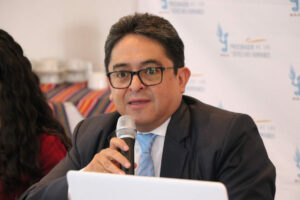
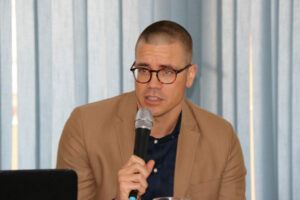
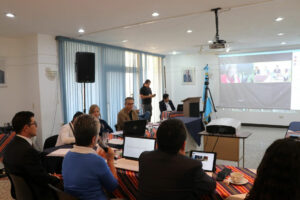
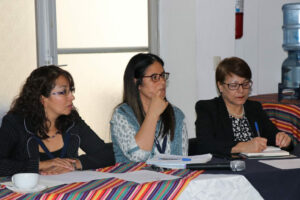
For the Canadian Department of Foreign Affairs, Trade and Development (DFATD), Just Governance Group’s Kimberly Inksater is providing monitoring services on the implementation of the National Legislative Development (NLD) project in Vietnam from 2015 to 2019. The NLD project addresses the issues of quality, consistency, and transparency within the law-making process which aims to make the legislation more effective and feasible. The consultancy will assist DFATD with the monitoring of the implementation of NLD with particular attention to the achievement of expected results in areas of legal and regulatory development, risk management, and performance in mainstreaming gender equality among others.
JGG´s gender specialists Paola Jiménez (Colombia) and Kimberly Inksater (Canada) reviewed the progress of the Sustainable and Inclusive Communities project in Latin America (CISAL) in terms of gender equality and inclusion and updated the project’s gender equality strategy. CISAL provides support to local governments in Colombia and Peru to successfully manage the impacts and benefits of mining development and promote sustainable economic growth for women and men. The JGG team also formulated a two-year plan of action and provided practical tools to improve CISAL´s monitoring and evaluation practices. (2018)
In June the group of Lloyd Lipsett (Canada), Jean Pierre Chabot (Canada), Muge Tuna (Turkey), Alessandra Tassara (USA), and Kimberly Inksater (Canada) completed the end-line assessment of the pilot project “Partnership to Prevent Child and Forced Labor in Imported Agricultural Products: Piloting the USDA Guidelines in Turkey’s Hazelnut Supply Chain”. The JGG team captured the state of the systems and programs, assessed the changes and results from the pilot project, and derived lessons learned that will support the future implementation of the USDA Guidelines.
JGG was selected to conduct an end of program evaluation of the support provided to the Procuraduría de los Derechos Humanos by the Embassies of Sweden and Norway between 2012 and 2016. The evaluation considered the progress made in human rights in the post-armed conflict context through conflict analysis, human rights promotion and human rights investigations. The evaluation report was submitted in October and the JGG was then asked to support strategic planning for the institution’s next strategic plan and program. (August – December 2017)
For the United Nations Population Fund (UNFPA) in Vietnam, Kimberly Inksater is leading an evaluation of the Domestic Violence Prevention and Control (DVPC) Law. The DVPC law sets out responsibilities of government agencies, social organizations and individuals in an effort to reduce domestic violence through education with men, boys, women and girls and to provide enhanced protection and civil remedies to victims of domestic violence. As an international consultant, Ms. Inksater will use international human rights normative standards as the evaluation framework to identify gaps within the legislation and its implementation.
For Baastel, Kimberly Inksater provided advisory services for the development of a program implementation plan for Mercy Corps and War Child, two international NGOs working on child protection in armed conflict zones in Colombia. The two organizations came together to create a consortium to implement the Protecting, Educating and Advancing Children and Youth in Colombia (PEACYC) program funded by the Canadian Department of Foreign Affairs, Trade and Development (DFATD). Ms. Inksater led the participatory process to prepare the program implementation plan. A team comprised of two Baastel consultants and consortium personnel prepared the results framework, performance measurement framework, risk mitigation strategy, organizational structure, implementation strategy and schedule, gender equality strategy, and communication strategy for the program.
Coordinated and conducted quality assurance for the external evaluation of a program implemented by the National Democratic Institute with nine civil society organizations. The program built the capacity of individual organizations and a consortium in relation to long term and election day observation methods, risk assessment, citizen participation (with a focus on youth, women and indigenous peoples) and electoral reform. Managed the evaluation process: selected and supervised electoral and evaluation experts, reviewed program documents, facilitated data analysis, provided comments on internal draft reports and communicated with NDI. (May – August, 2016)
For Bank on Human Rights Coalition, Kimberly Inksater and Lloyd Lipsett lead the development of standards and indicators of an assessment tool designed for use by development finance institution and borrower country personnel in assessing ex-ante project impacts on human rights. The standards for the assessment are based on international human rights law, guiding principles, and best practice among development finance institutions across various issue areas such as indigenous peoples, land, health, labour, and poverty reduction. Two law students from the Faculty of Law at the University of Ottawa supported the research.
Since 2013, Just Governance Group provides Subject Matter Experts to a Canadian government course called “Introduction to Fragile State Policy.” In March, 2015 Dr.Stephen Baranyi of the University of Ottawa was the expert for the delivery of the course in French at the Centre for Intercultural Learning. The Centre co-delivers courses for the Department of Foreign Affairs, Trade and Development. In 2013 and 2014, Kimberly Inksater provided the content expertise to an English version of the same course.
Kimberly Inksater conducted a final evaluation of the Judicial Independence and Human Dignity Initiative (known as Karamah) at the request of the Department of Foreign Affairs, Trade and Development of Canada from late 2012 to early 2014. The Karamah initiative was designed and implemented by the University of Windsor and the Institute of Law at Birzeit University from 2005 to 2012 with financial contributions from the Government of Canada and the universities and partners. The universities partnered with the Palestinian judiciary and the Palestinian Judicial Institute, to introduce a new model of judicial education to the Palestinian judiciary. This model, which was judge-designed, judge-led, with adult education/skills-based methods, incorporated new approaches to judicial reasoning and rights-based analysis that considered the position of the litigants, and the disadvantages faced by women and others in the Palestinian context. The project also partnered with the Ministry of Justice to support its institutional strengthening initiatives as it established itself in the West Bank after Hamas gained political control in the Gaza Strip. The project also worked with the Palestinian Bar Association, journalists, and non-governmental organizations that provide legal services to Palestinian men and women (such as the Jerusalem Legal Aid Centre and the Women's Centre for Legal Aid and Counselling) to enhance a human rights based approach to media reporting on the justice sector and knowledge of lawyers related to the strategic litigation based on human dignity analysis.
Kimberly Inksater worked with two Ukrainian lawyers, Dmytro Yagunov and Mariana Yevsyukova, to evaluate the progress of the Juvenile Justice Reform Project. The project was implemented by Agriteam Canada Consulting Ltd. and the Government of Alberta, Ministry of Justice and Solicitor General as the executing agency and financed by the Department of Foreign Affairs, Trade and Development of Canada. In September and October 2013 the team conducted interviews in Kyiv, Melitopol and Ivano-Frankivsk with national, sub-national (oblast) and municipal level stakeholders related to criminal justice and social rehabilitation for minors in conflict with the law. The project is supporting new initiatives implemented by judges, police, alternative sentencing officers and social workers in pilot communities in order to help Ukrainians develop a criminal justice system for minors based on international standards (United Nations and European Union) for children in conflict with the law.
Verdad, Reparaciones y Justicia para las Mujeres Víctimas del Conflicto Armado en Colombia
The final evaluation of the Truth, Reparations and Justice for Women Victims of Armed Conflict Program was conducted by Indevelop, and led by Kimberly Inksater, between September and December 2013 at the request of the Embassy of Sweden in Colombia. The Program promoted the effective exercise of the rights of women to truth, justice and reparation in the context of the armed conflict in Colombia through initiatives with four target groups: i) women victims of violence; ii) civil society organizations representing a diverse range of groups; iii) state institutions with duties related to the exercise of human rights; and iv) the international community, especially cooperation agencies that form a coordinating group on gender. Interviews and meetings were held in Bogota, Villavicencio (Meta), and Pasto (Nariño), as well as via video conferencing.
A combined Canadian-Palestinian team of gender equality and women's human rights experts completed almost three years of advisory services to Justice Canada in relation to the Sharaka project, an initiative to strengthen the Office of the Attorney General and Public Prosecution in the West Bank. Varsen Aghabekian, Kimberly Inksater, Lisa Lachance and Beth Woroniuk monitored gender issues in the Palestinian criminal justice system by reviewing law reform initiatives, tracking news related to access to justice and violence against women, and gathering information from international and Palestinian organisations on progress and challenges. The team also advised on the integration of gender equality and women's human rights across the Sharaka project's institutional initiatives. Technical advice focussed on operating procedures related to cases of violence against women, specialised training for prosecutors, human resource policies, physicaldesign of district offices, and information technology.
The Just Governance Group and the Centro de Investigación y Promoción del Campesinado (CIPCA), a Bolivian NGO, co-ordinated and facilitated an exchange of experiences between indigenous leaders and specialists from three countries in the Americas that have been directly involved in consultation processes related to megaprojects and natural resource extraction/exploitation. The presentation of case studies and group discussion was part of the Latin American Network on Legal Anthropology (RELAJU) biannual congress that took place in Sucre, Bolivia from October 22-26, 2012.
Between July and December, 2012 Kimberly Inksater and Christopher Yeomans evaluated a series of projects implemented by the Department of Sustainable Democracy and Special Missions of the Organization of American States. The projects involved the development and implementation of a methodology designed to analyze political institutions and processes and potential risks to democratic stability in countries in the region. JGG evaluated the relevance, effectiveness, efficiency and sustainability of the application of the methodology in order to generate lessons learned, conclusions and recommendations for future work of the Political Analysis and Scenarios section of the Department.
Human Rights impact assessment methodology and guide for the Department of Foreign Affairs and International Trade (Canada). Designed measurement indicators appropriate to human rights possibly affected by trade activity. The proposed methodology was designed to measure the impact of the Canada Colombia Free Trade Agreement on human rights in Colombia and Canada, consult with stakeholders and the public on findings and report on findings to the Parliament of Canada.
JGG, in consortium with CANADEM, conducted an external evaluation for the Institute of Democracy and Electoral Assistance (IDEA) over a period of seven months. JGG-CANADEM assessed the impact of the Electoral Processes Programme from 1995 as well as the relevance, effectiveness, efficiency and sustainability of the results achieved by this programme between 2005 and 2011. The evaluation prepared a market analysis of current electoral assistance initiatives; assessed the Programme’s participation in international consortia; analysed and assessed an Electoral Risk Management tool; compiled lessons learned and provided advice and recommendations on possible future strategies for International IDEA’s electoral processes work.
Responsible for a mid-term evaluation of CIDA support to the program of the Inter-American Organization for Higher Education. The College is a network of several Inter-American continuing education inter-university networks that provide courses and conduct research related to good governance issues, including judicial training related to due process and equality rights in Inter-American human rights law. Gathered data from university officials, course participants and institutions (including judicial training institutes, public prosecutors, judges and Ombudsman) in Ecuador, Peru, El Salvador and Washington. (2011)
JGG researched good practice guidelines and lessons learned from development and reform efforts in states considered fragile due to armed conflict or other factors for UNICEF. Compiled lessons learned related to various sectors including: justice and rule of law, education and health in order to provide guidance to UNICEF’s child protection work. (2011)
Presented a paper on the advances on each of these issues and reflected on how they are mutually reinforcing themes, especially related to the extractive industry, at the symposium of the Just Governance Group held for government officials. (2011)
Provided advisory services to CIDA’s West Bank and Gaza program related to the design of a multi-institutional justice sector measurement initiative. Prepared a paper on good practices in measurement of progress in justice sector based on a desk review of publications and materials published by multilateral, intergovernmental, bilateral and non-governmental agencies as well as academics and practice initiatives. Accompanied development officers on a field mission to meet with representatives of justice institutions in the Palestinian Authority and donor agencies working in rule of law, justice and security sectors. The purpose of the initiative was to promote evidence-based justice reform that integrated gender analysis. (2010-2011)
The Just Governance Group developed an external and internal monitoring and evaluation system with the Global Fairness Initiative project. The project seeks to promote labour rights of workers in the informal sector by developing formalization strategies through an innovative trilateral process in Guatemala and Nicaragua. JGG provided external monitoring and evaluation on the M&E system designed collaboratively. (2009-2011)
JGG conducted an end-of-phase evaluation for CIDA of a bilateral funding mechanism designed to transfer Canadian policy development knowledge to Chinese government institutions related to rule of law, ethnic minority rights, and labour rights. Selected eight sub-projects to analyze in depth: reviewed policy documents, implementation reports, conducted structured interviews in five provinces in China with Chinese implementing partners, (national Ministries, provincial and municipal government agencies, legal clinics, prison officials), and in four Canadian cities with Canadian partners (government agencies, universities and private firms). (2010)
Evaluated a regional program financed by CIDA that brings together social work faculties at academic institutions, non-governmental organizations and community-based practice centres in Jordan, the West Bank, and Israel. The program seeks to strengthen coexistence and collective action in disadvantaged communities by applying a rights-based social work approach. (2010)
Monitor/Advisor for the Canadian International Development Agency (CIDA) on a project being implemented in Tibetan Autonomous Prefectures in Western China. Prepared human rights approach to apply to project which involves rural entrepreneurship and strategic community planning to promote the economic, social and cultural rights of Tibetans in pilot areas. Reviewing project documents, gender equality strategy, expected results, indicators and baseline information. (2009-2010)
End-of-project evaluation on Belgian support to the institutional strategic plan of the Defensoría. Assessed a five-year institutional strengthening program that supported the Defensoria’s internal management strengthening, rights protection to vulnerable populations, and supervision of government agencies’ compliance with human rights obligations. (2009)
El grupo de gobierno justo diseñó e impartió un taller de capacitación sobre herramientas de análisis de conflictos para miembros de la Plataforma Latinoamericana de la Sociedad Civil para la Prevención de Conflictos en Panamá. (2009)
JGG co-implemented a project with the National Human Rights Institution of Bolivia with financial support from Sida. I coordinated a team of five experts from various countries in the Americas including the Bolivia-based JGG consultant who acted as liaison with the Defensor del Pueblo of Bolivia. The Just Governance Group provided methodological and technical expertise to the Indigenous Rights Program of the Defensor del Pueblo in the process “Defining Legal Pluralism” in Bolivia and co-organized a series of workshops and seminars involving indigenous justice authorities, public prosecutors, judges and personnel from the Defensor. The JGG experts prepared academic papers on legal pluralism that examined indigenous peoples’ rights, indigenous justice systems, gender equality and intercultural dialogue with state justice systems in the context of constitutions reform. (2008)
Just Governance Group lead a mid-term external evaluation of an access to justice program with several thematic components: indigenous peoples’ access to justice; indigenous law and legal pluralism; women’s access to justice; labour law and agrarian law. JGG prepared and conducted interviews, meetings and focus groups with governmental and judicial authorities, public prosecutors, public defenders, Ombudsman officials, unions, non-governmental organizations, and indigenous authorities. Facilitated critical reflection with the program implementing agency (Soros Foundation of Guatemala) and the Swedish and Danish Cooperation agencies that actively support the program. (2008)
Evaluated a research and advocacy project implemented by the Institute on Comparative Studies in Criminal Law (ICCPG) and supported by the International Development Research Centre (IDRC). Reviewed monitoring methodologies (including indicators related to gender, legal pluralism, due process) related to criminal justice law and judicial and security reform in order to assess the results of the monitoring, advocacy and capacity building initiatives to reform aspects of the criminal justice system in Guatemala. Interviewed judicial educators, police, public prosecutors, public defenders, prison officials, representatives of the legislative branch and representatives of the judicial branch as part of the evaluation process. (2008)
Conducted a desk study of ten sample LJR projects for Asia Branch at CIDA in order to identify outcomes and good practices in results-based management in the justice, security and rule of law sectors. Gathered and systematized good practices from international sources in order to assess the success of the CIDA-supported projects. (2008)
Conducted an evaluation of a project that established a network of judicial educators implemented by the National Judicial Institute and supported by CIDA. Evaluated the network against good practices in network management in the international development context and expected results for improved judicial education in the Americas, the Philippines, Canada and Ghana. (2008)
Advised the International Cooperation Group of the National Judicial Institute (judicial education for federal judges) on the design/planning of two new multi-actor and multi-country judicial education initiatives with Canadian and justice sector partners in various developing countries. Prepared project planning documents and logic models with the NJI team. (2008)
Provided advisory services and accompaniment with the Defensoría del Pueblo in its three-year institutional strengthening program in conflict zones (funded by Sida). Assessed the human rights protection and promotion initiatives of the Defensoría in the context of armed conflict from a perspective of the multiple disadvantages of vulnerable population groups (gender and ethnicity). Assessed the institution’s monitoring of the government’s compliance with constitutional jurisprudence related to internal displacement and the armed conflict. (2005-2008)
Conducted a desk study of ten sample LJR projects for Asia Branch at CIDA in order to identify outcomes and good practices in results-based management in the justice, security and rule of law sectors. Gathered and systematized good practices from international sources in order to assess the success of the CIDA-supported projects. (2008)
Researched and analyzed anti-discrimination provisions of international human rights conventions and Chinese legislation in order to demonstrate the legal basis for a project at initial design phase. Also examined justice-related approaches to address discrimination against people living with HIV/AIDS for further consideration in the design phase. (2007)
Lead evaluator for a mid-term evaluation of a regional project involving three components implemented by six national institutions (universities and non-governmental organizations) in Guatemala and Honduras; for the Ministry of Foreign Affairs of Finland. (2006)

